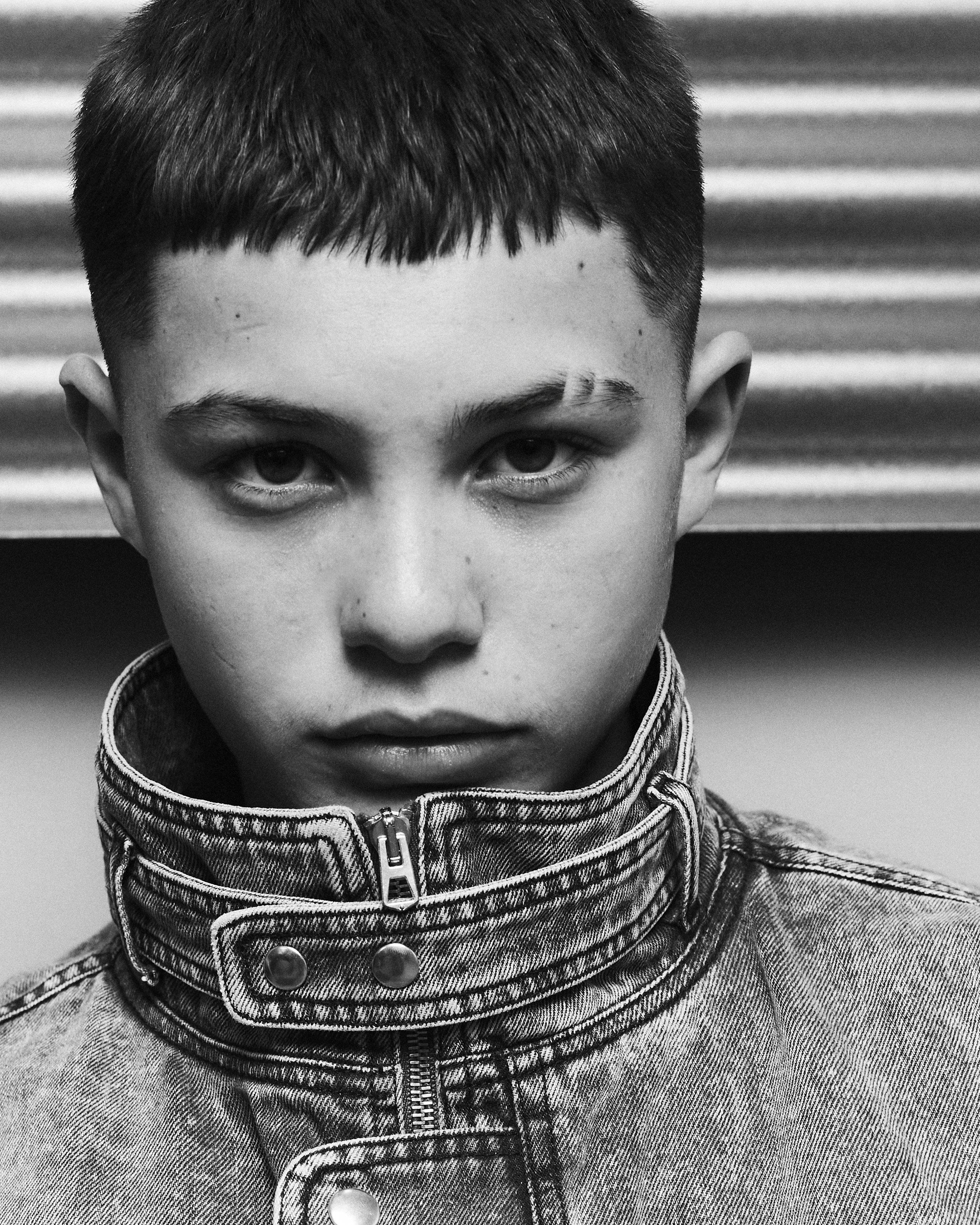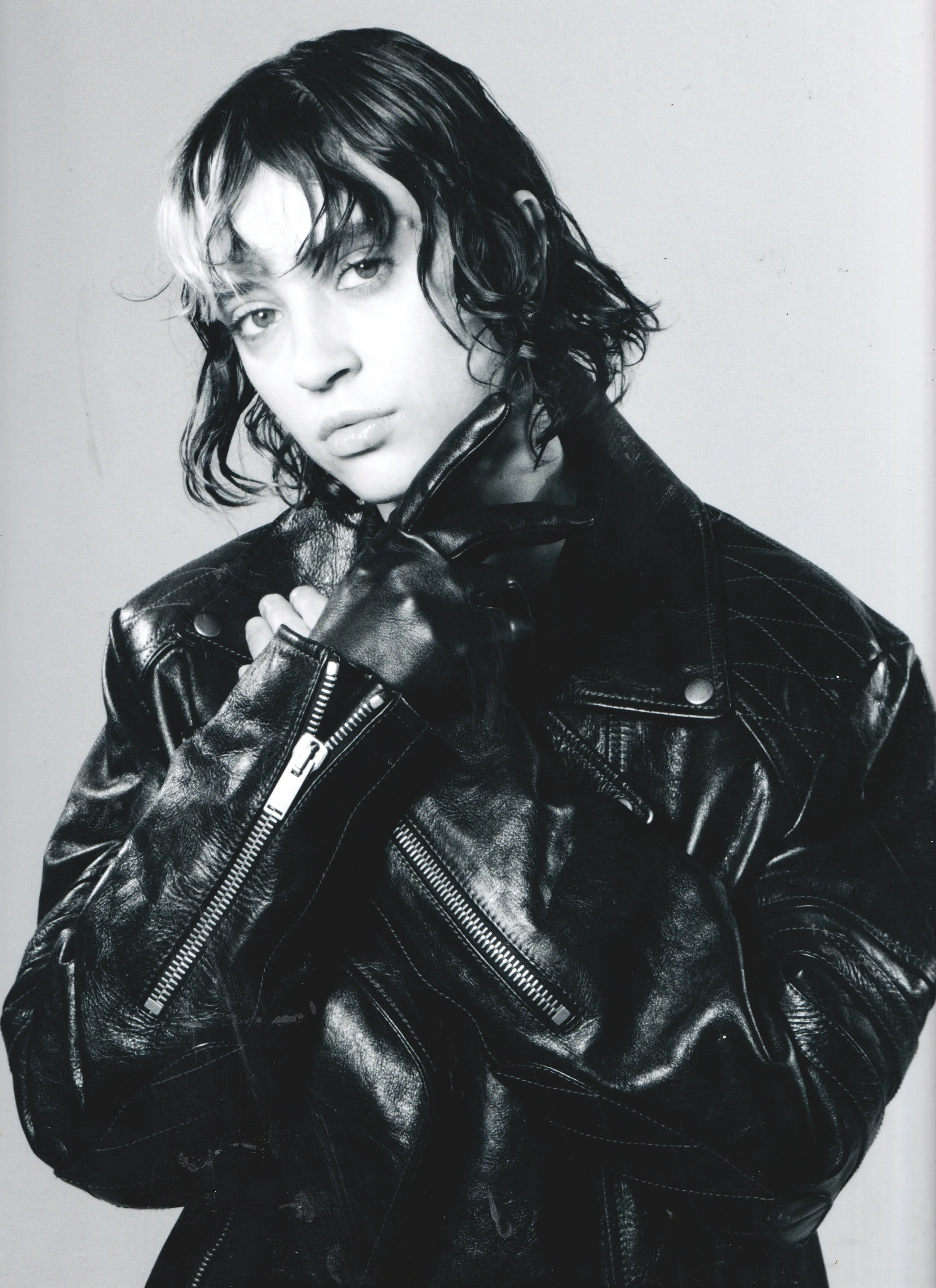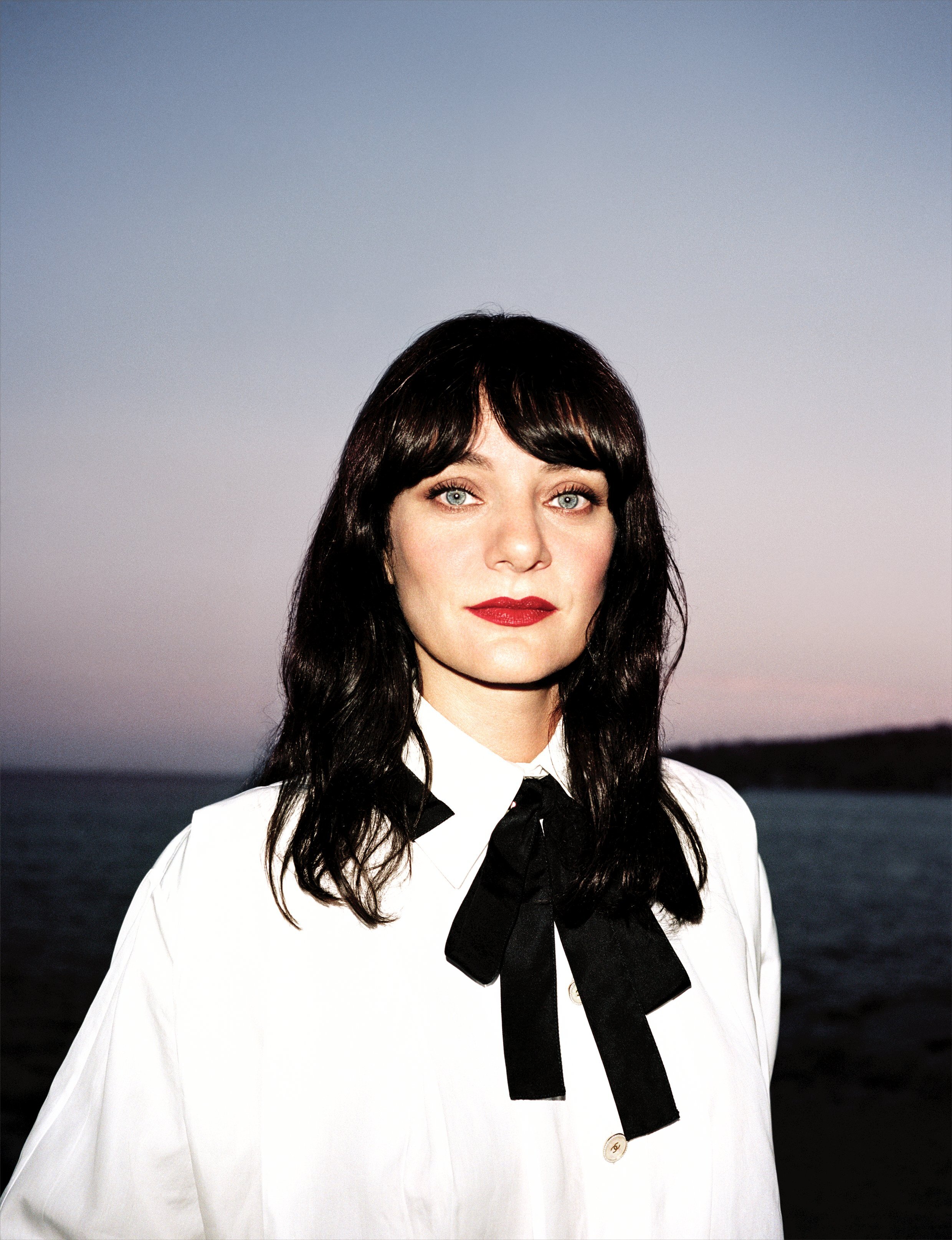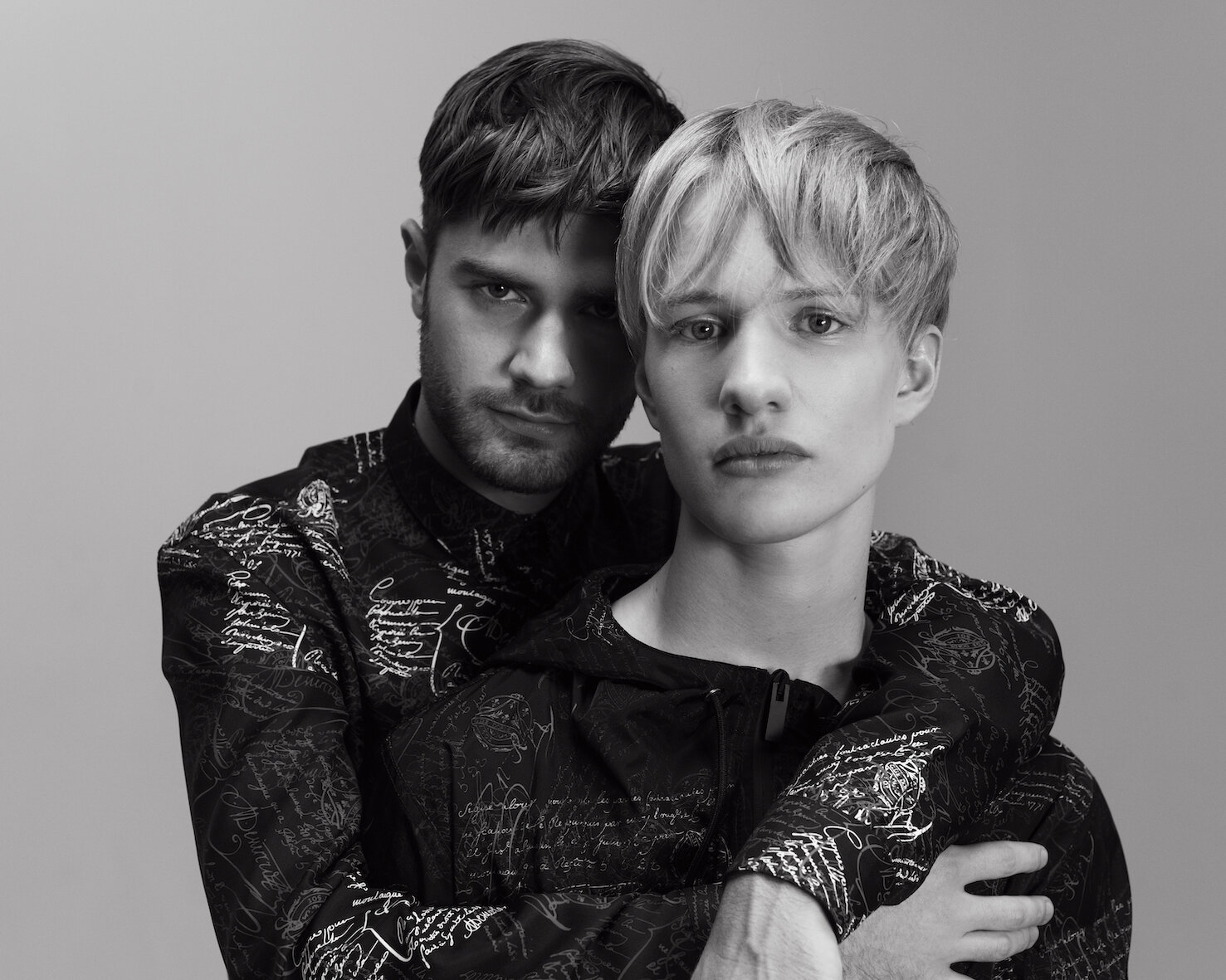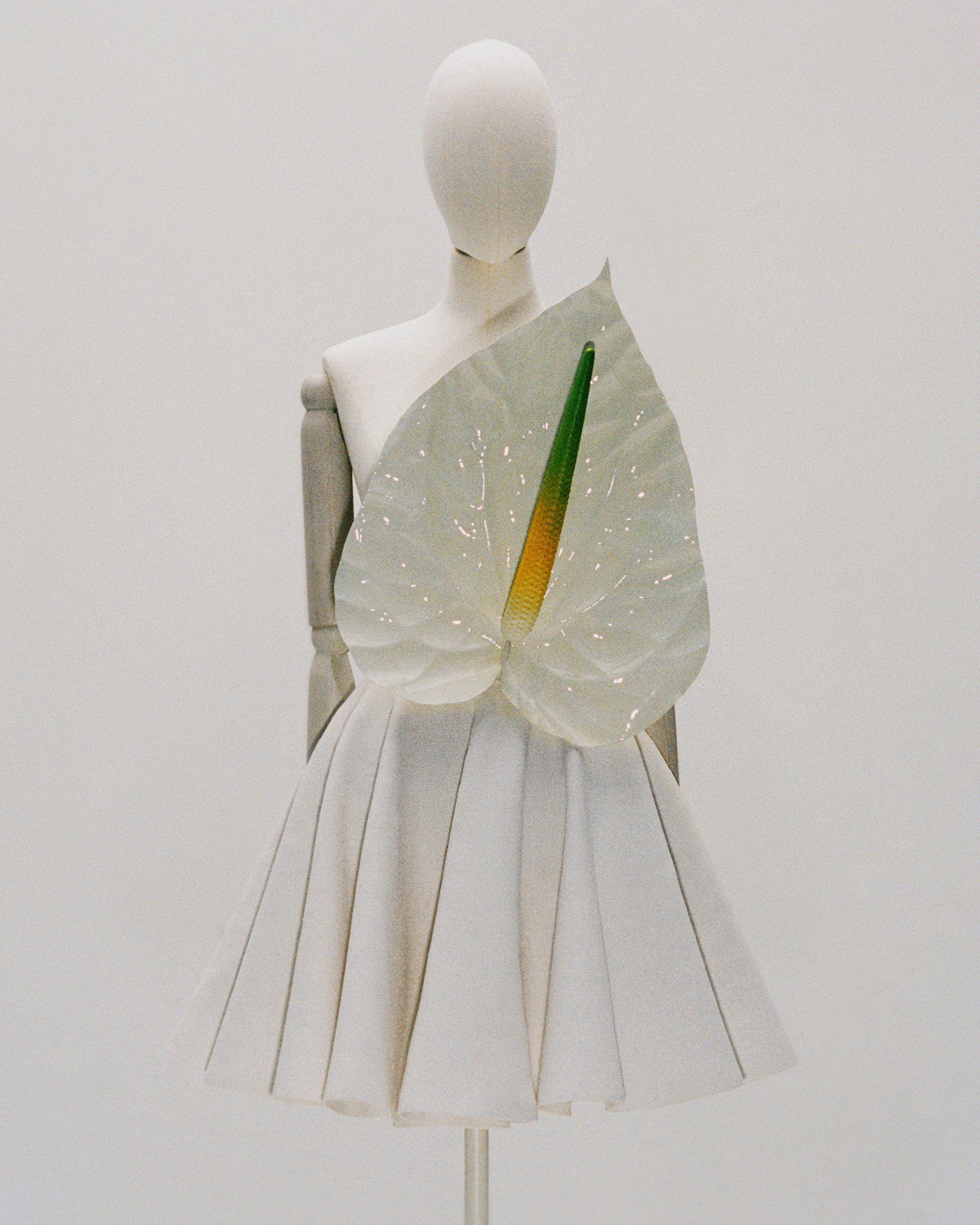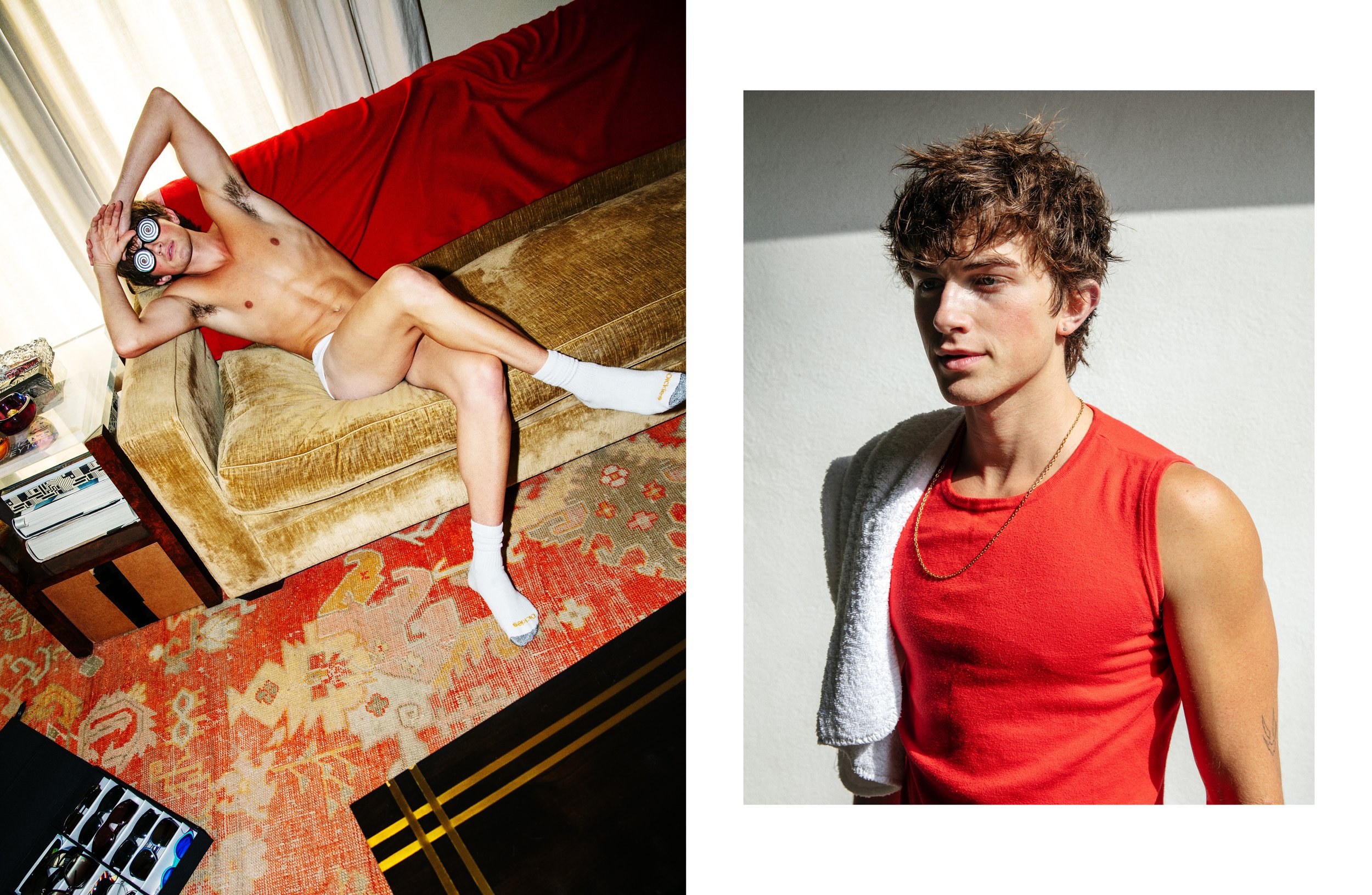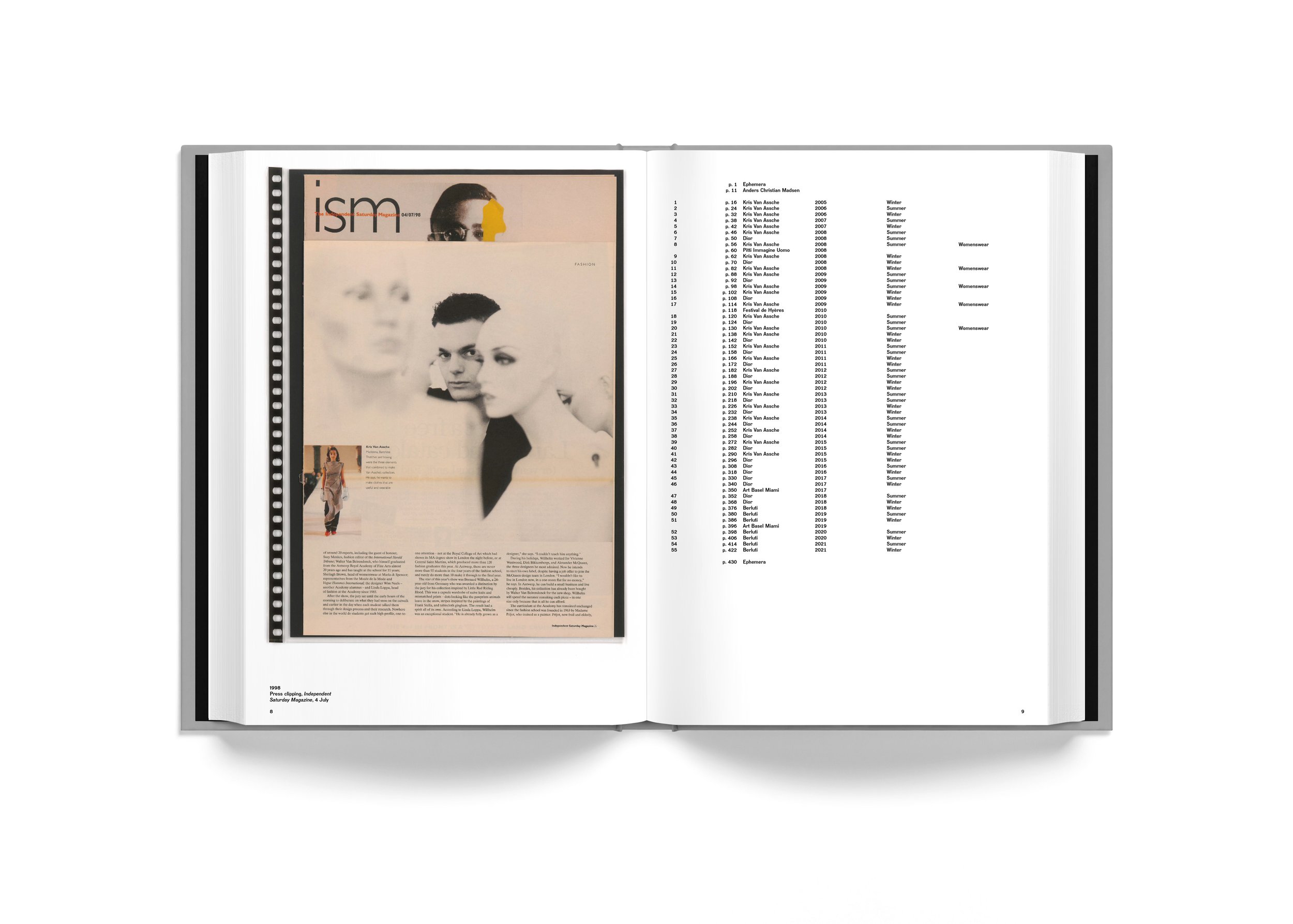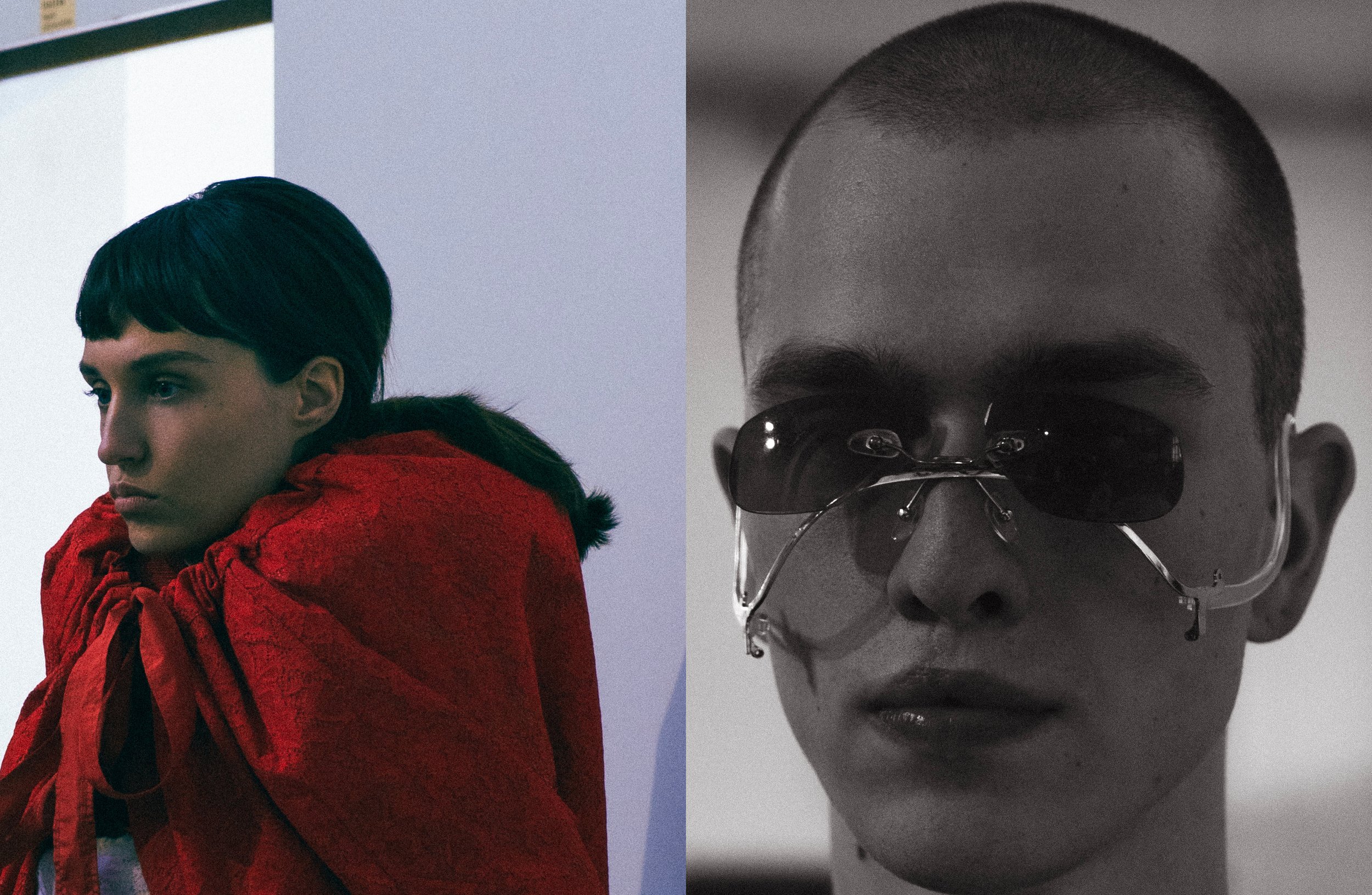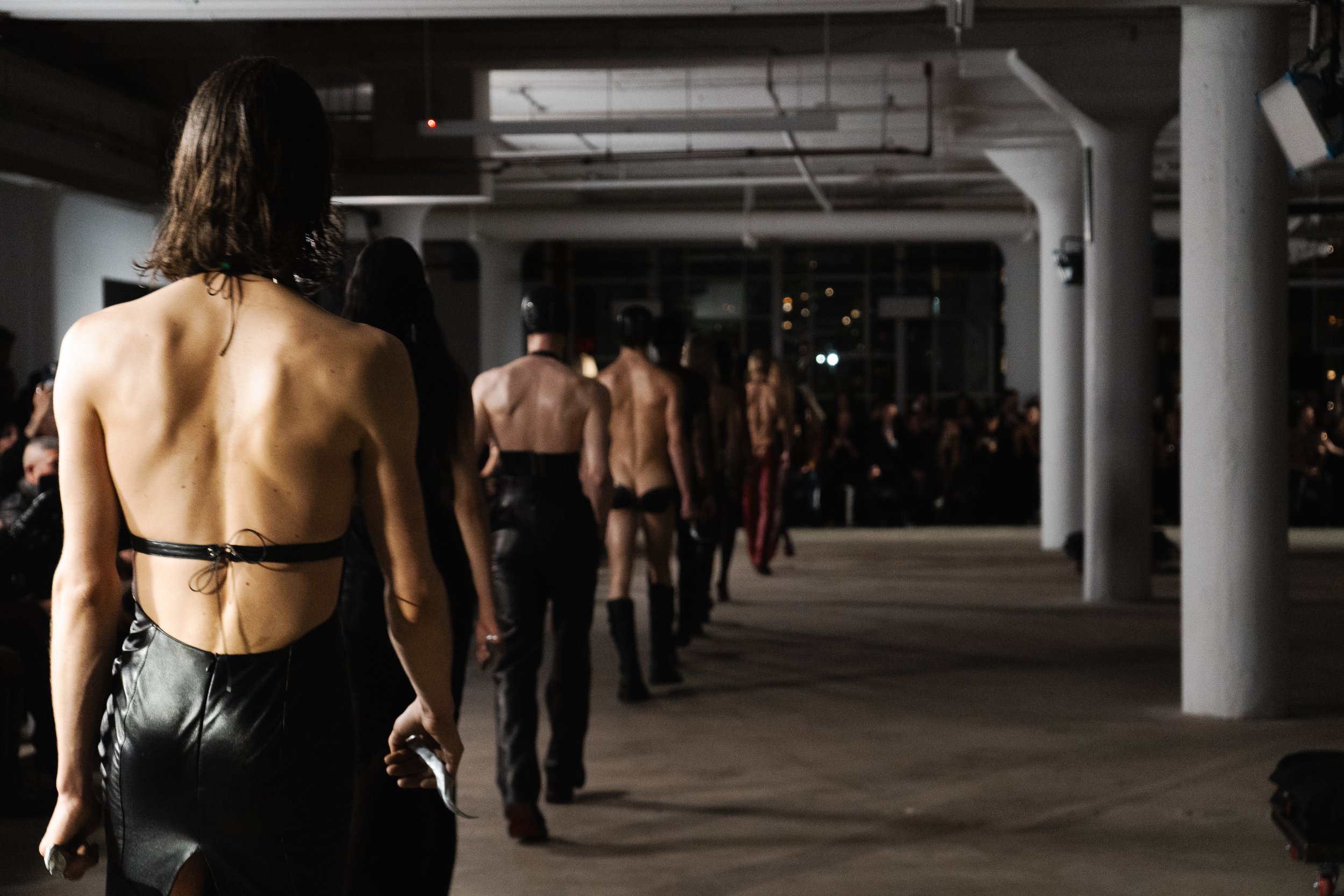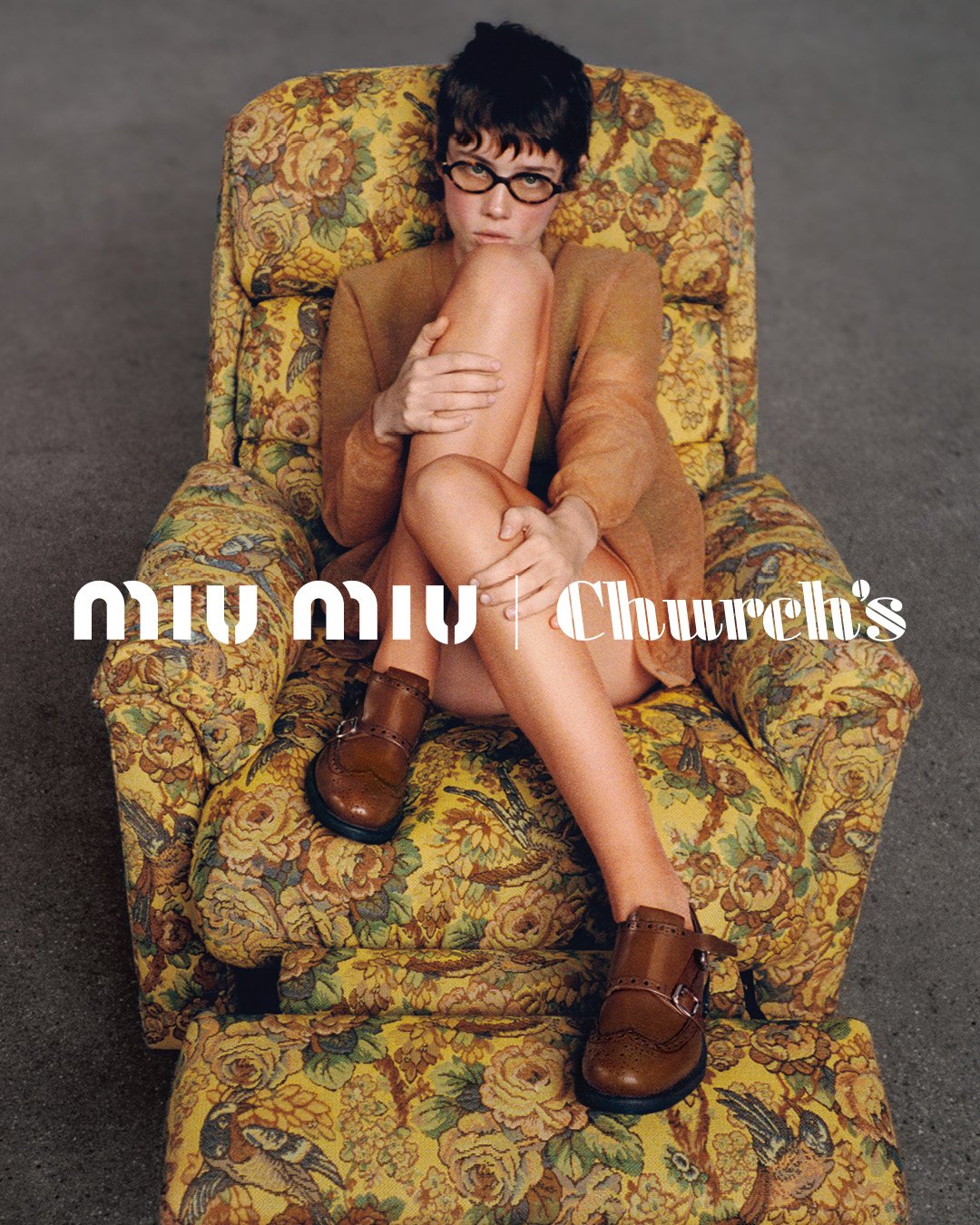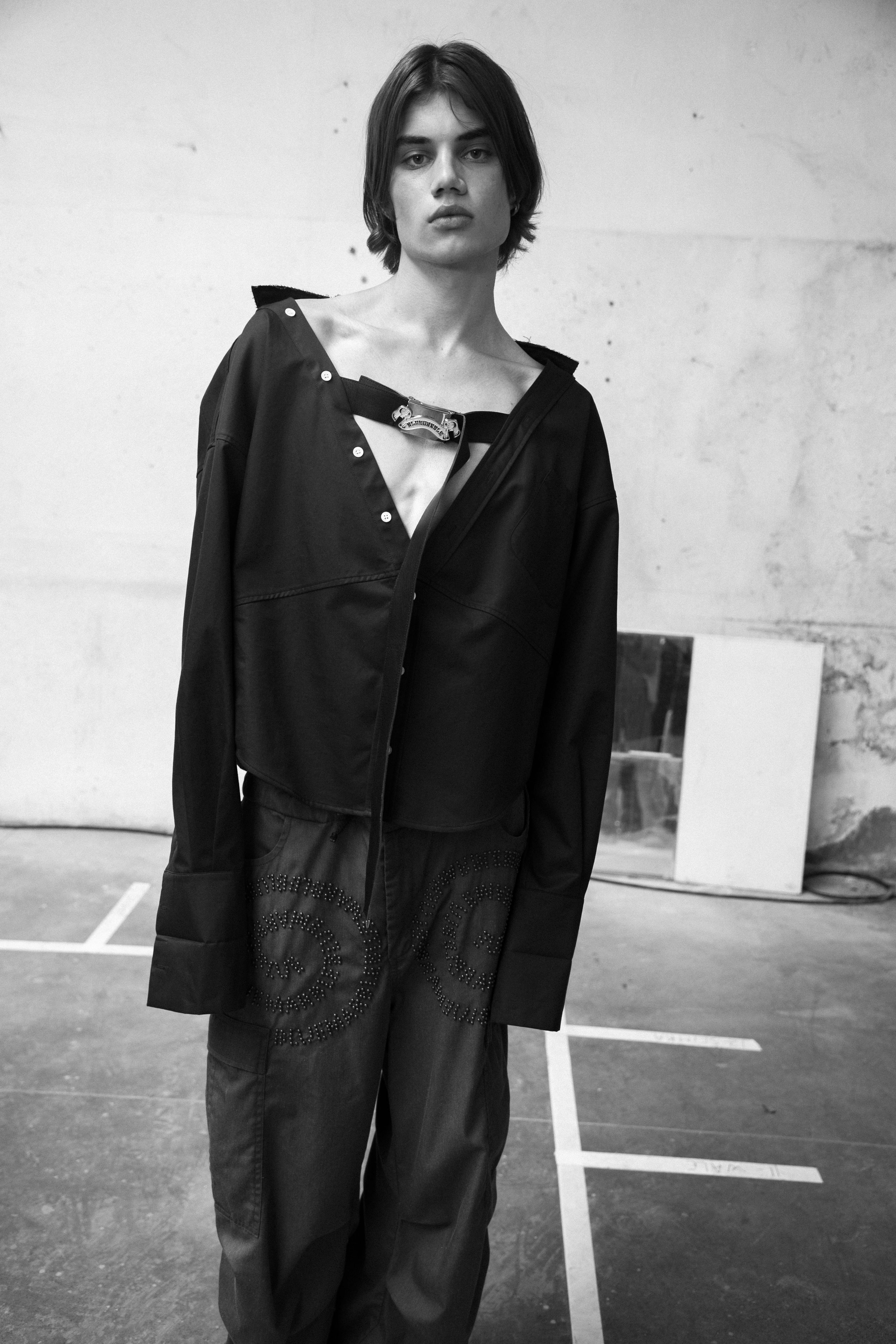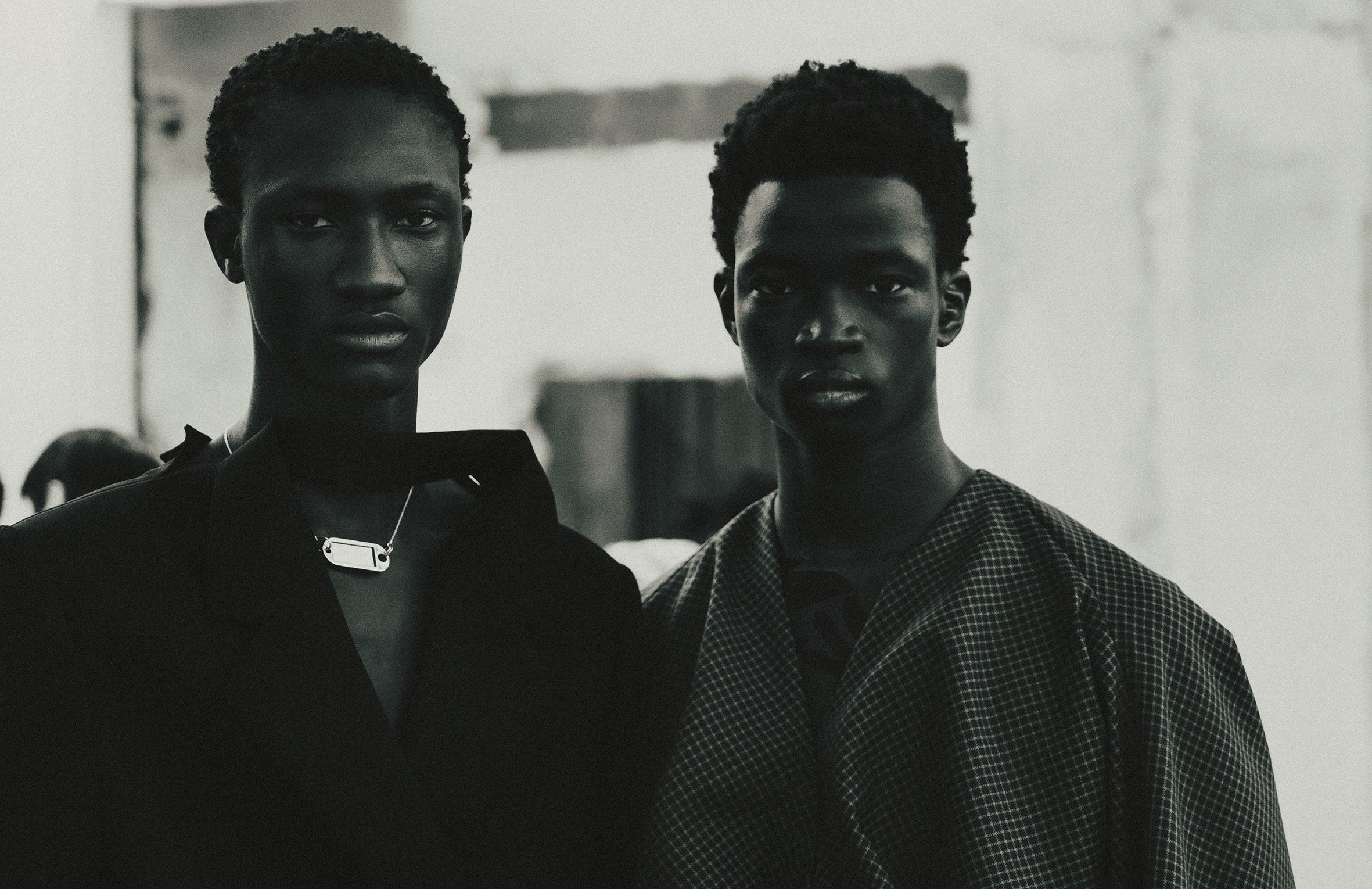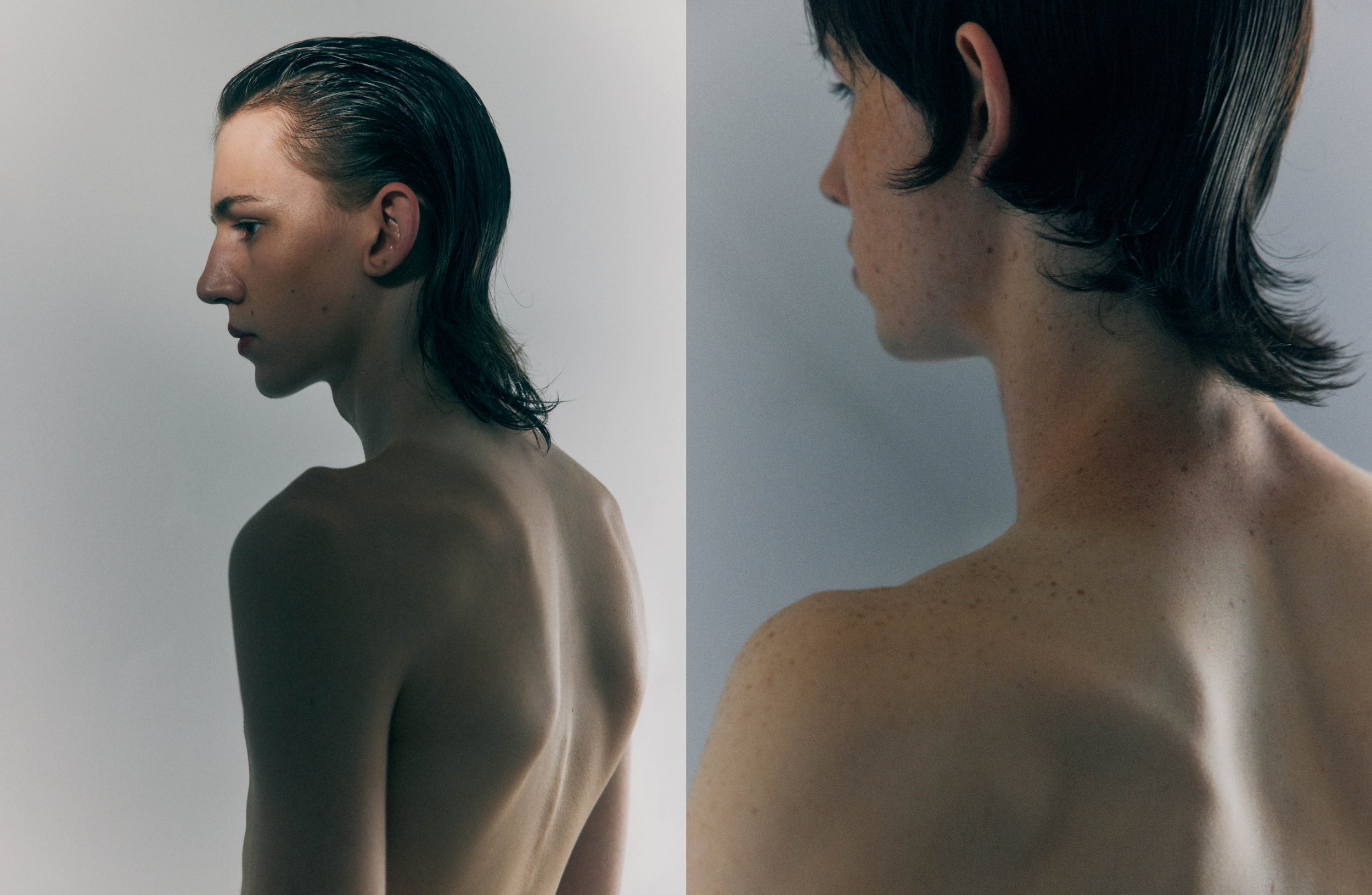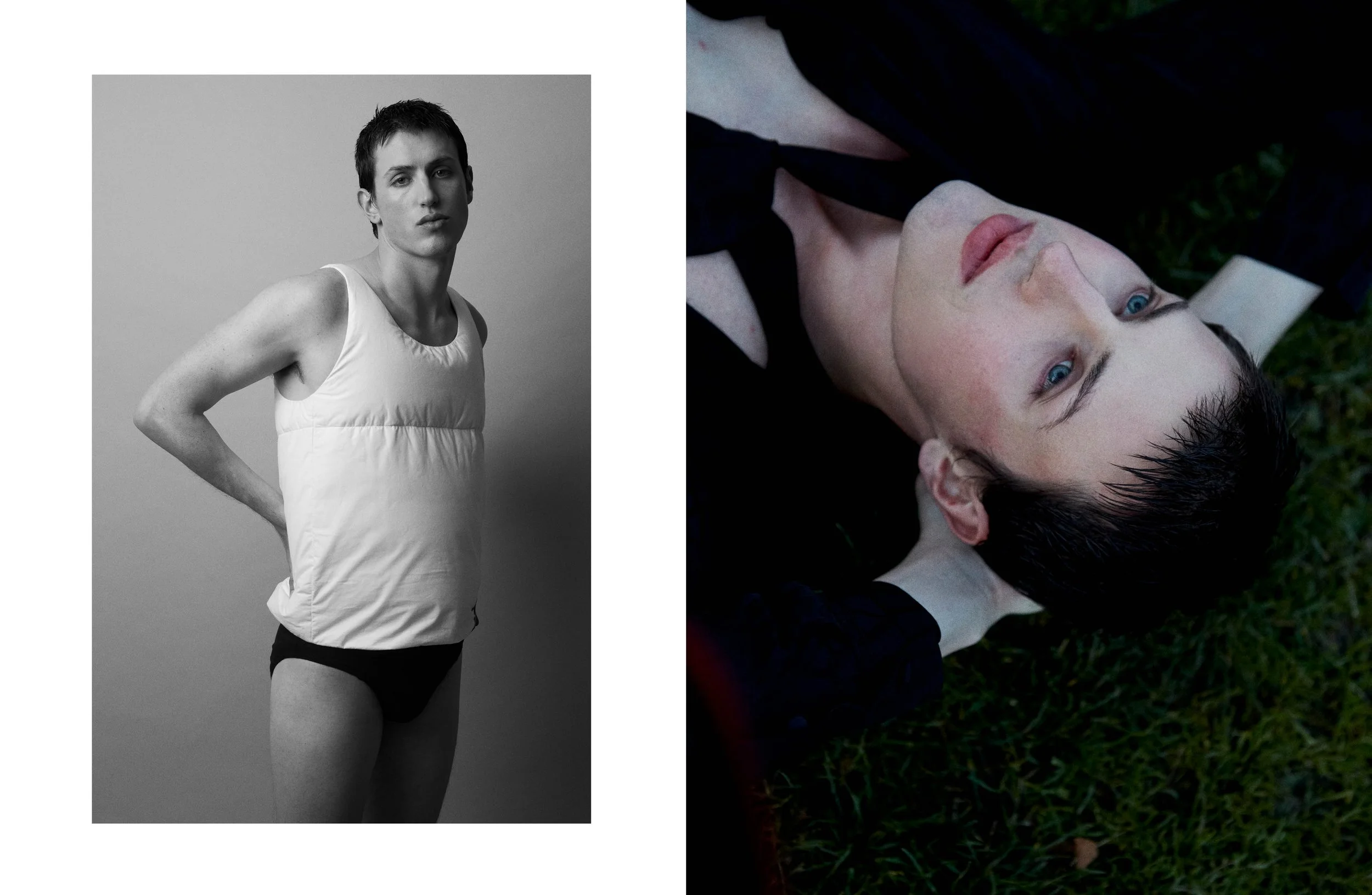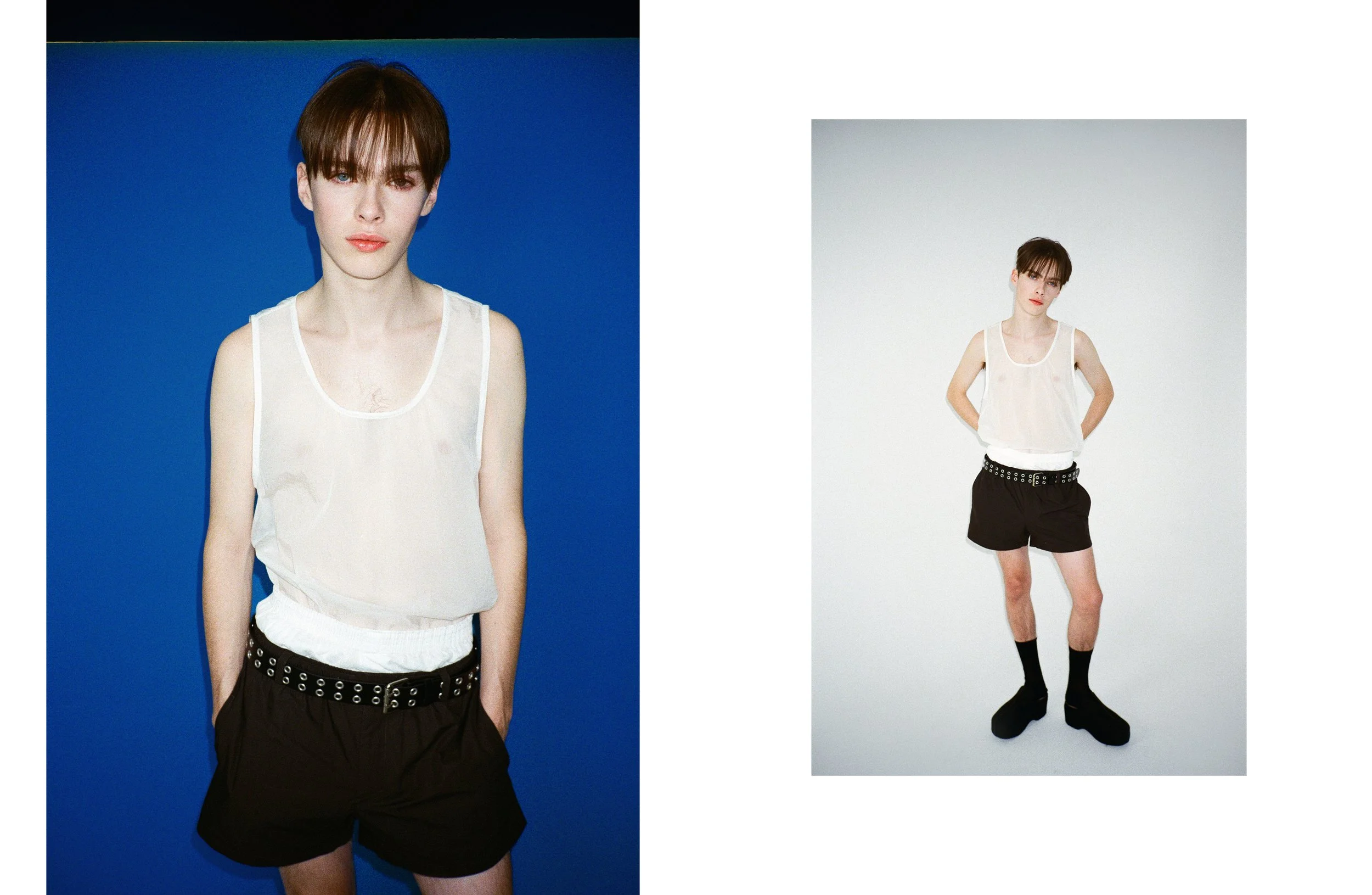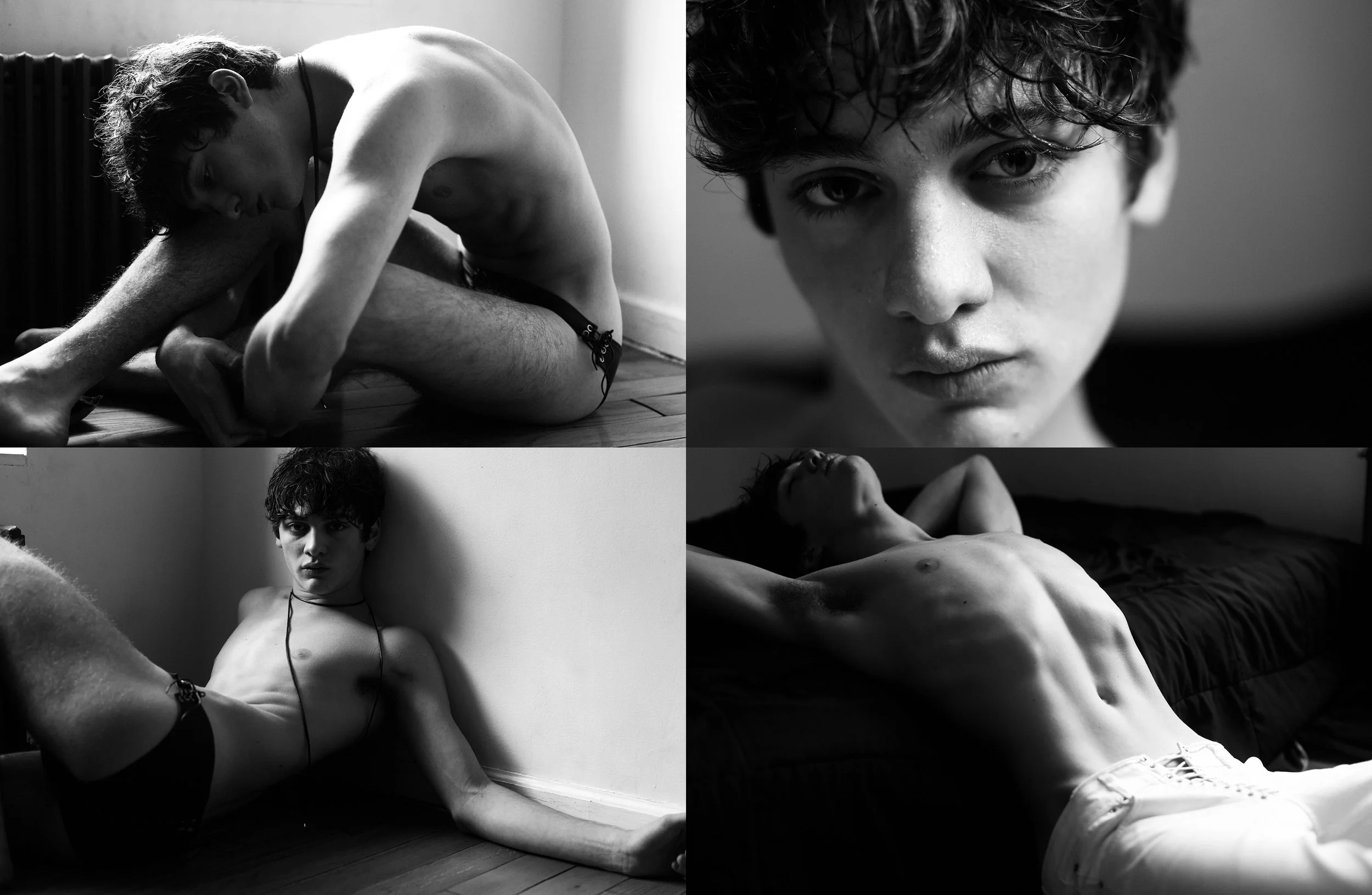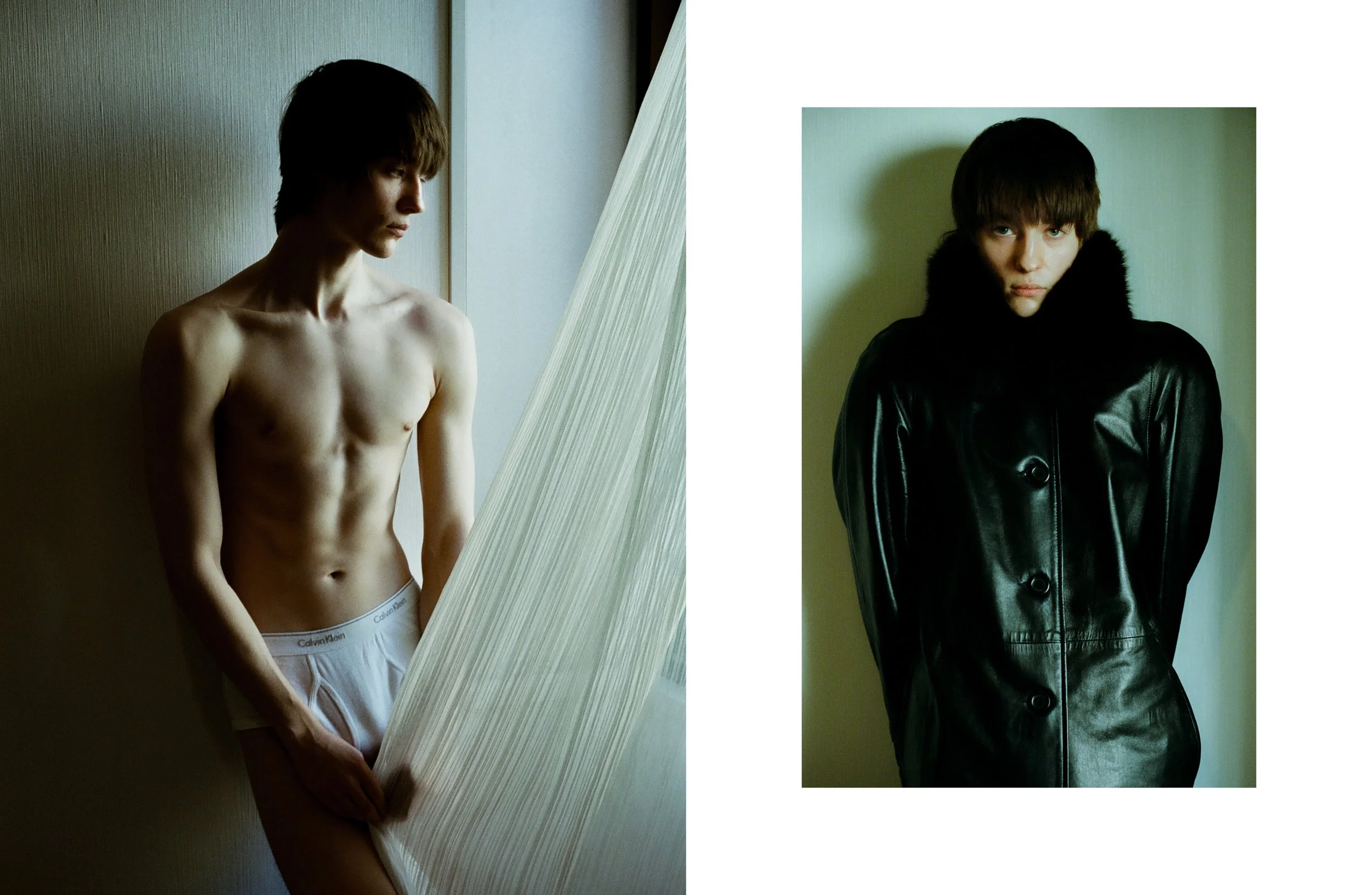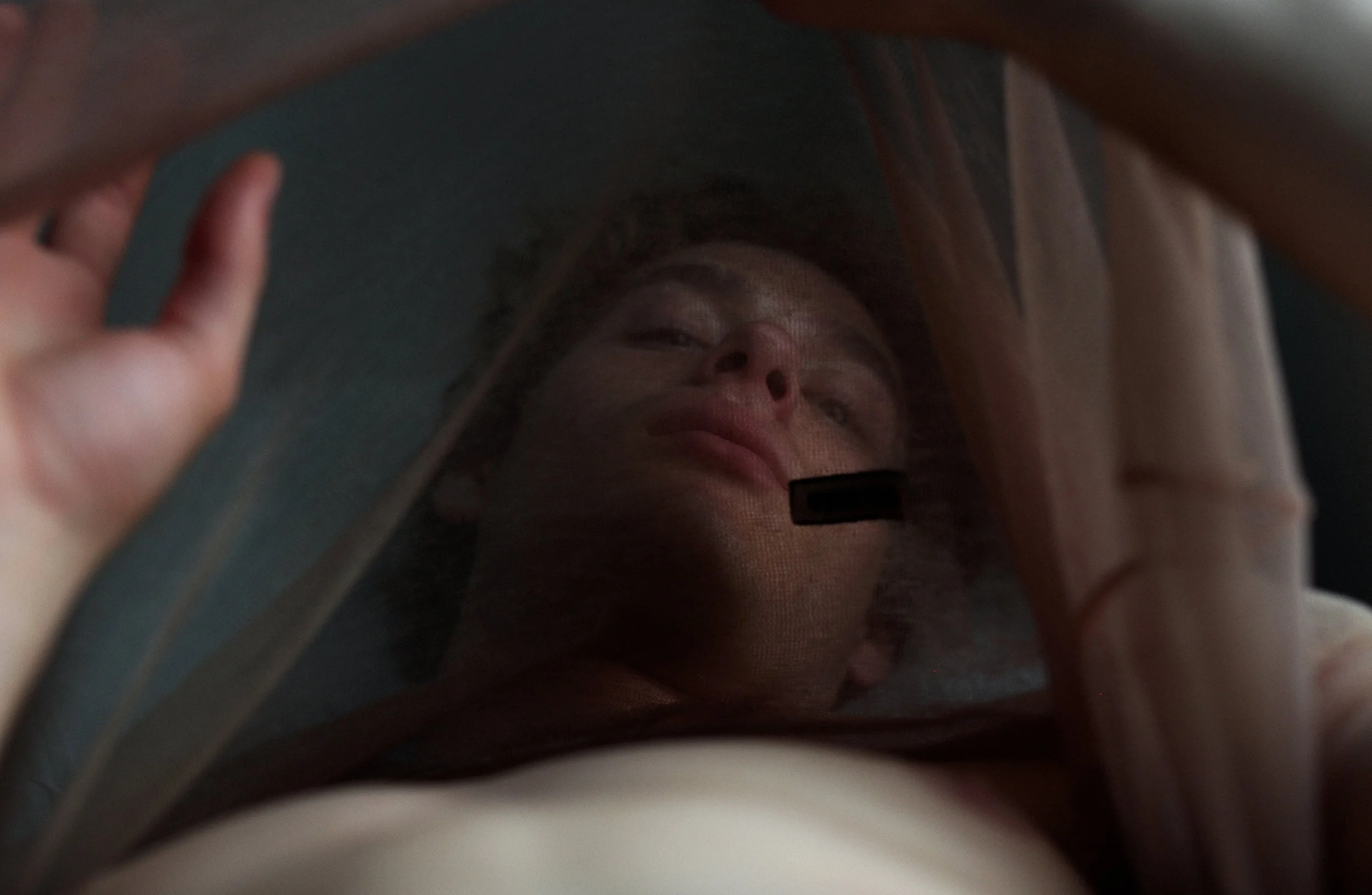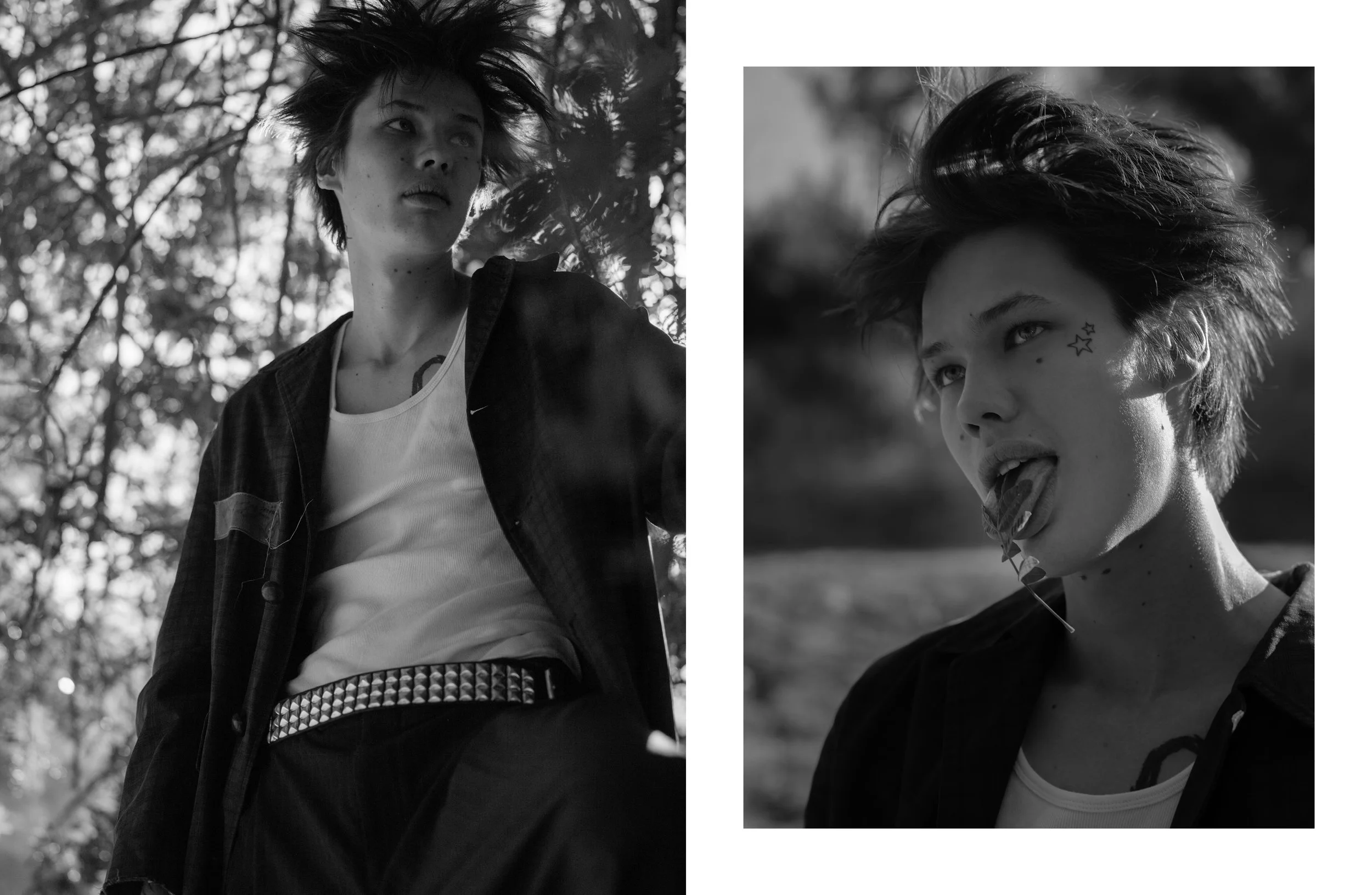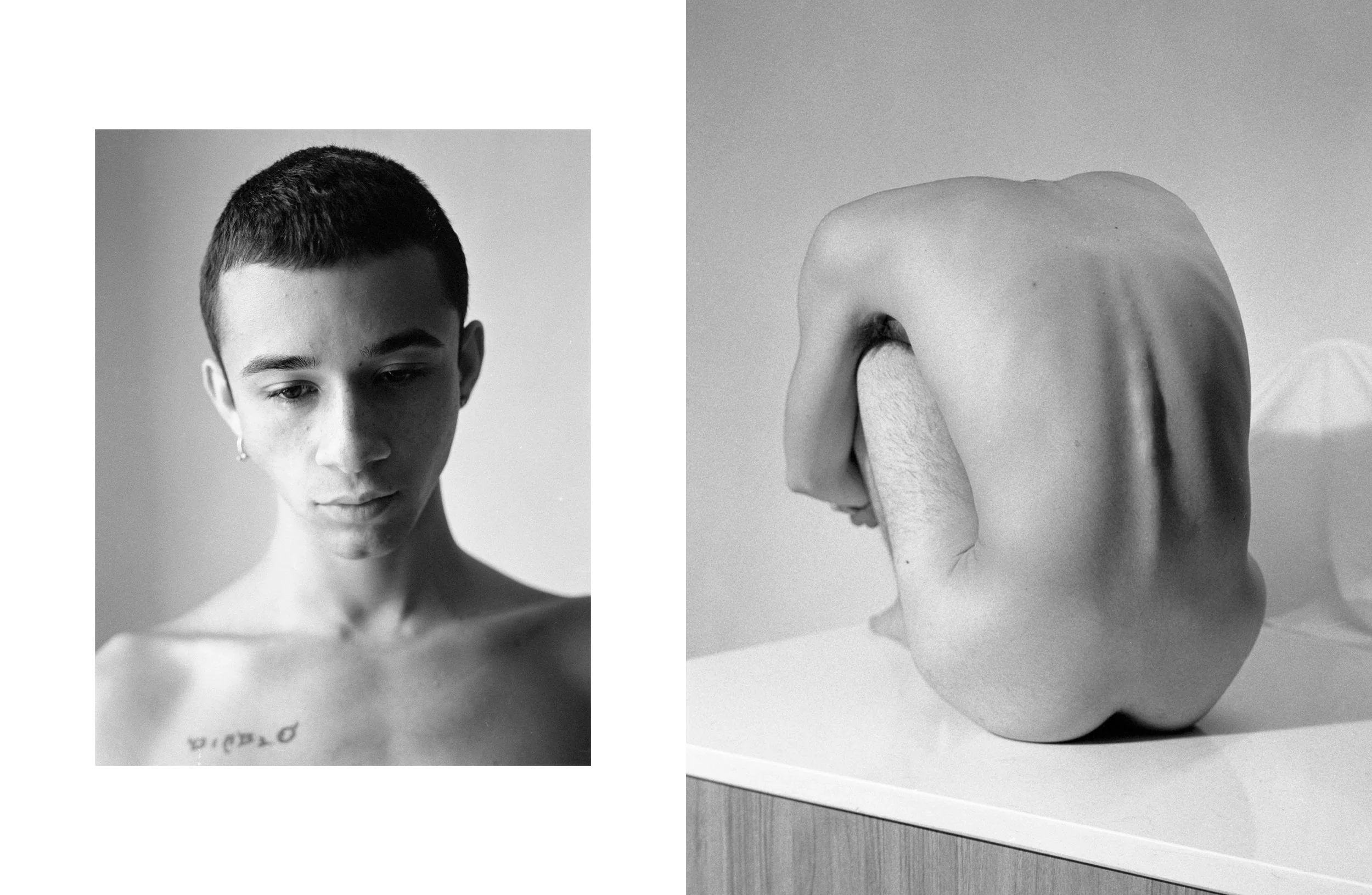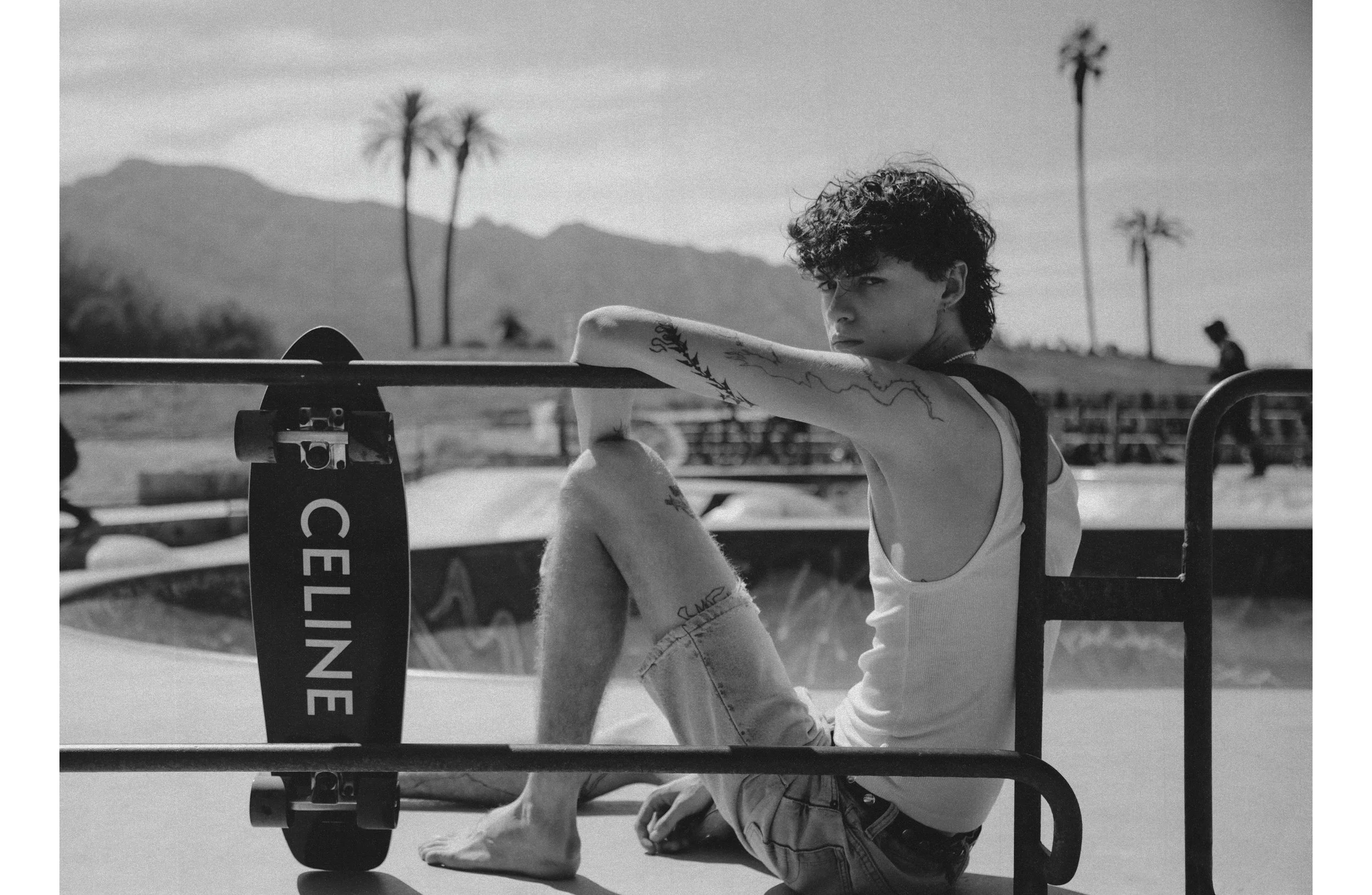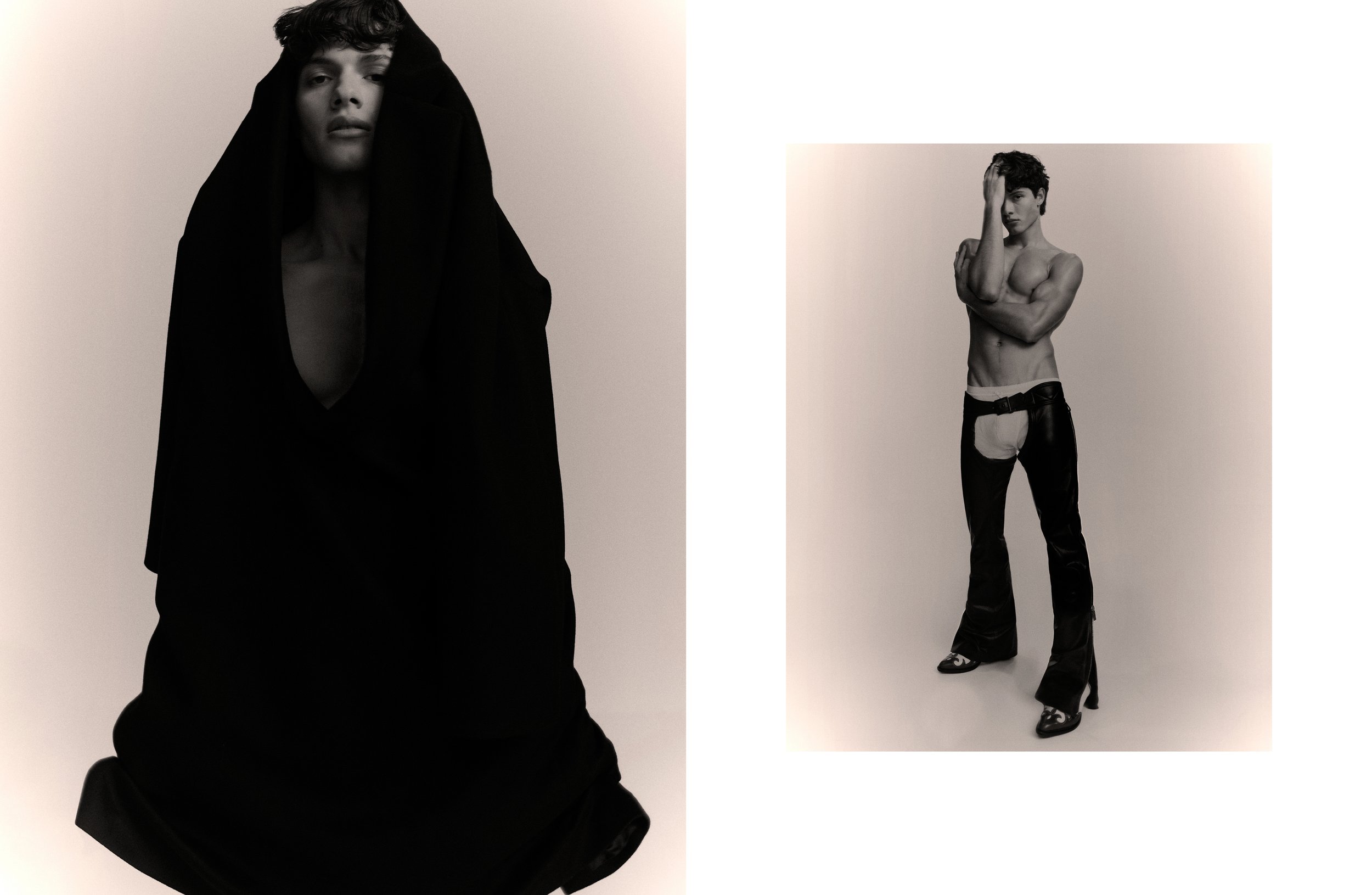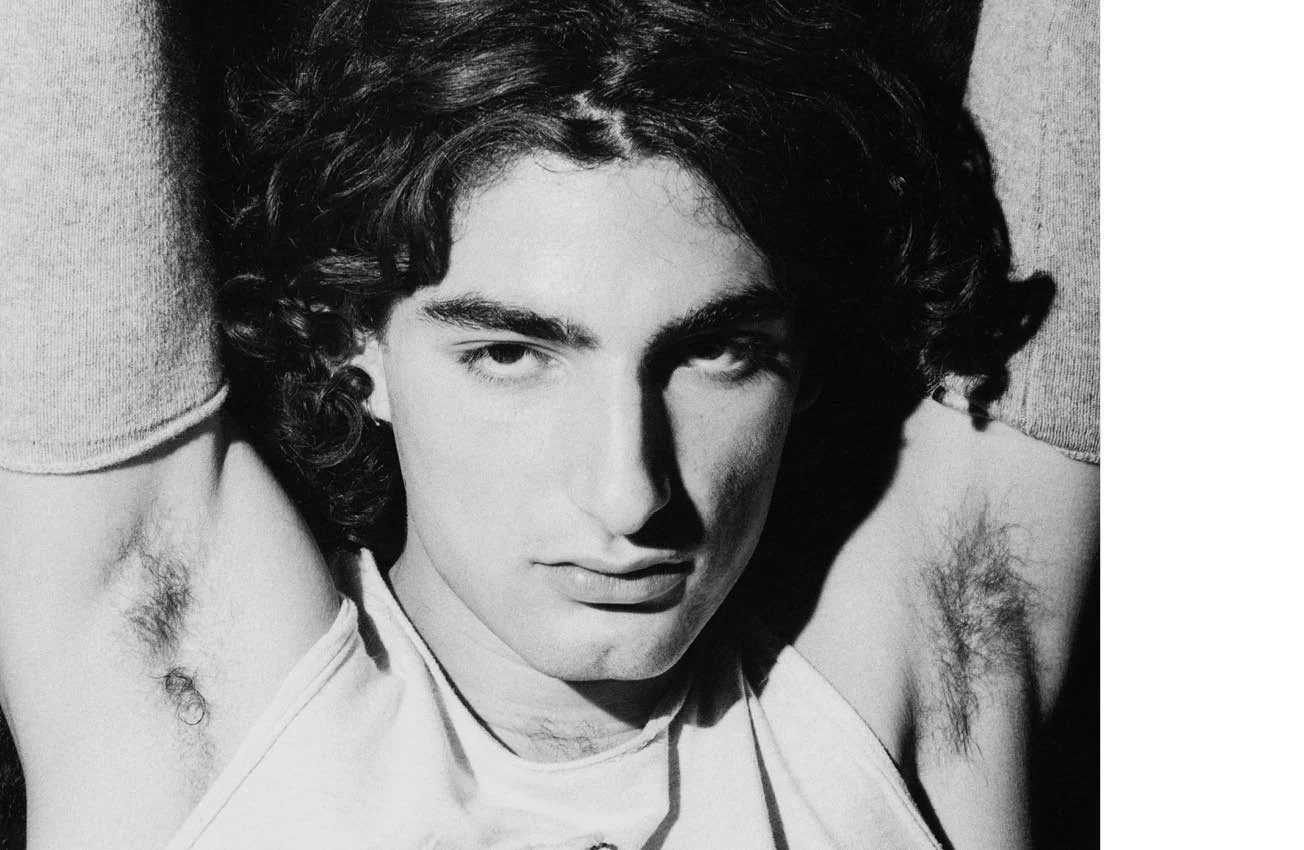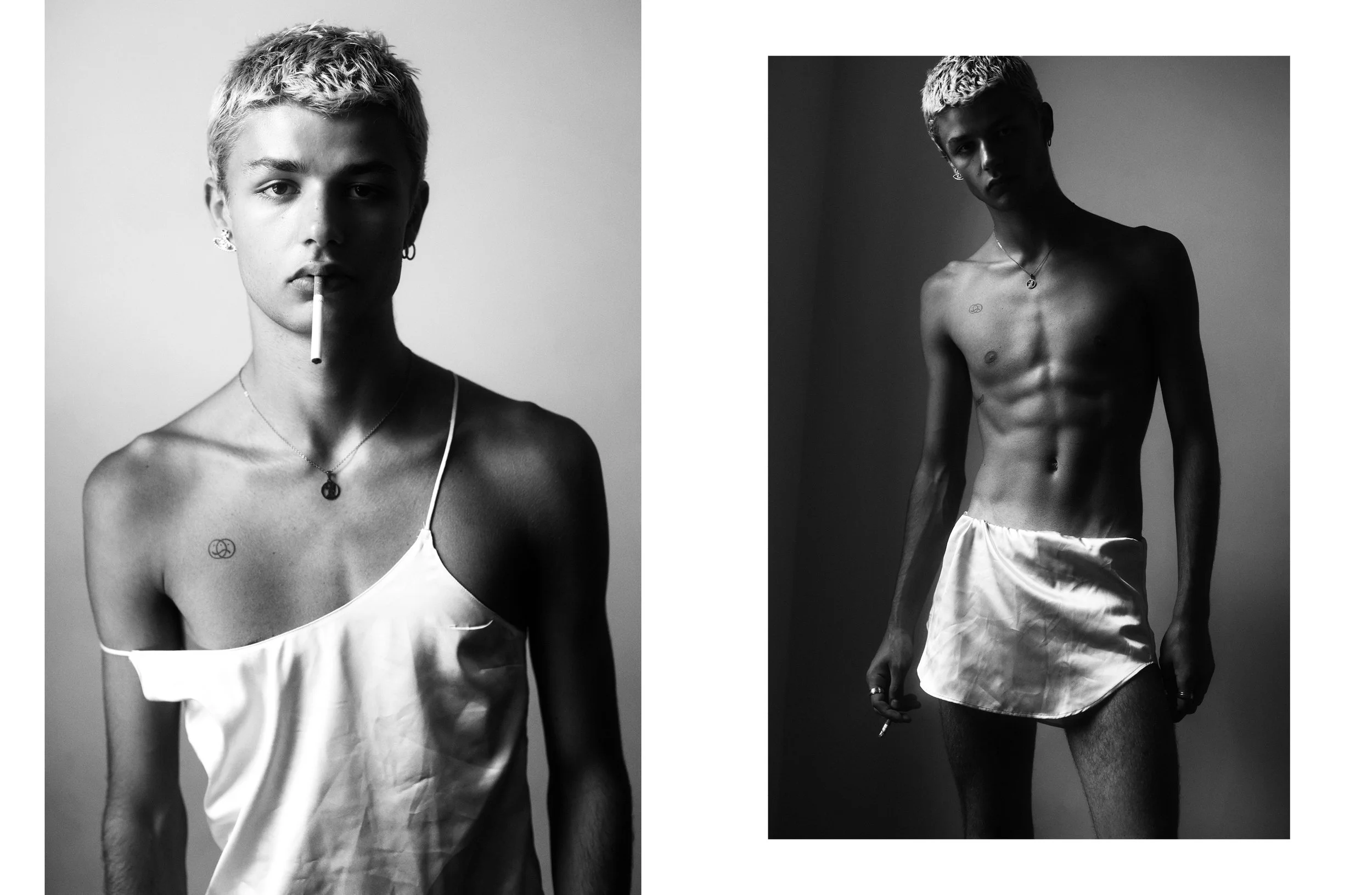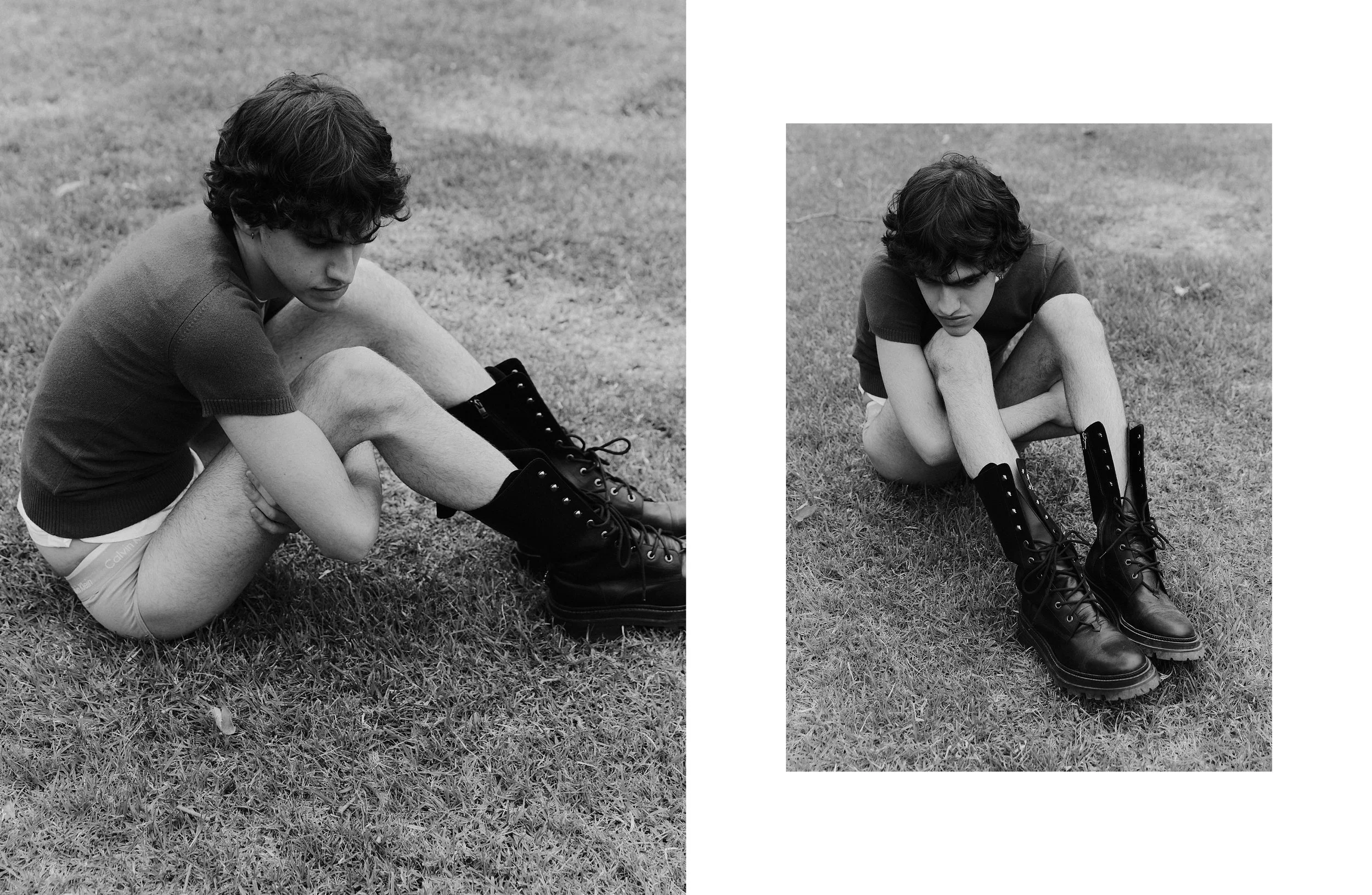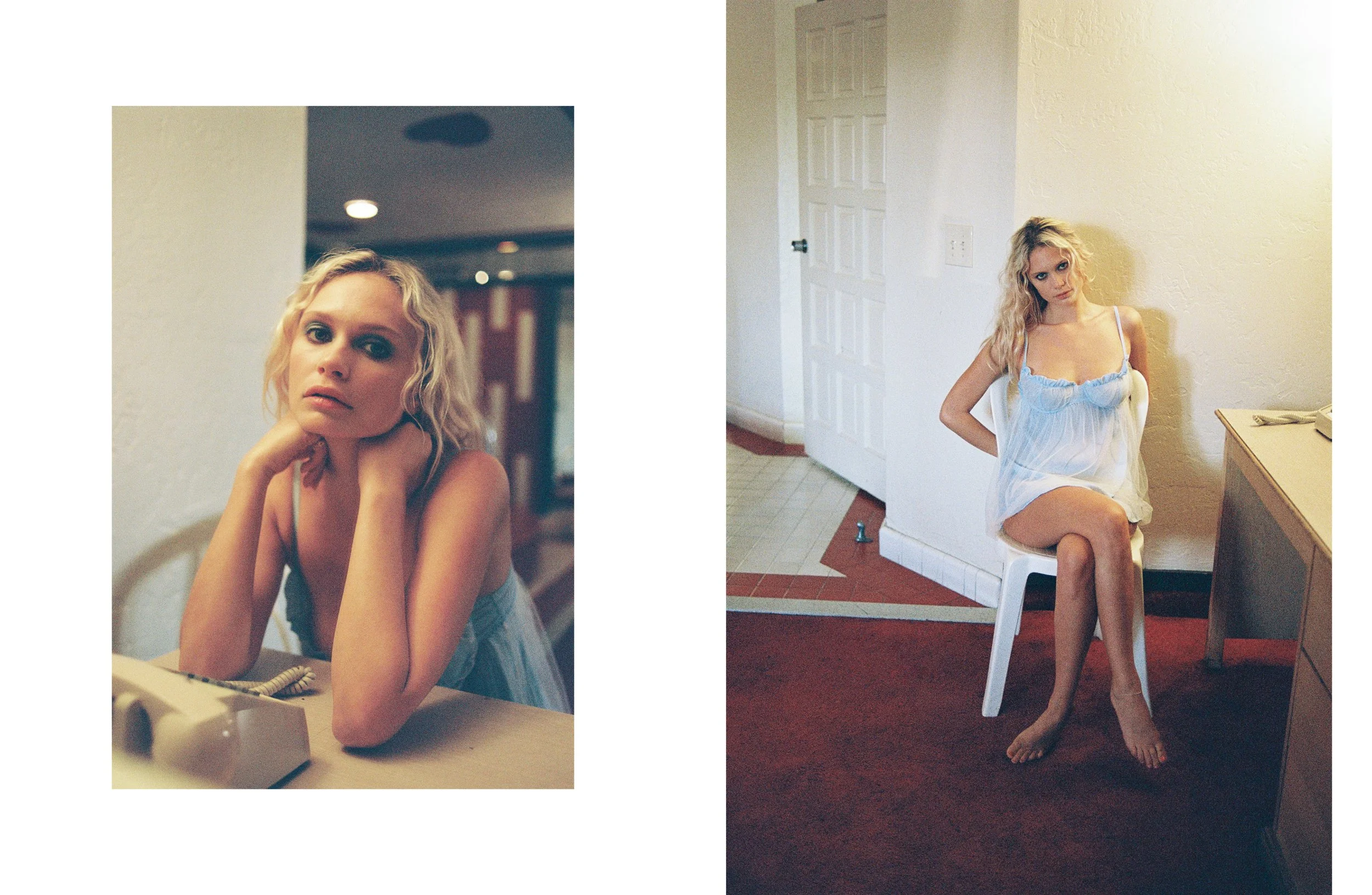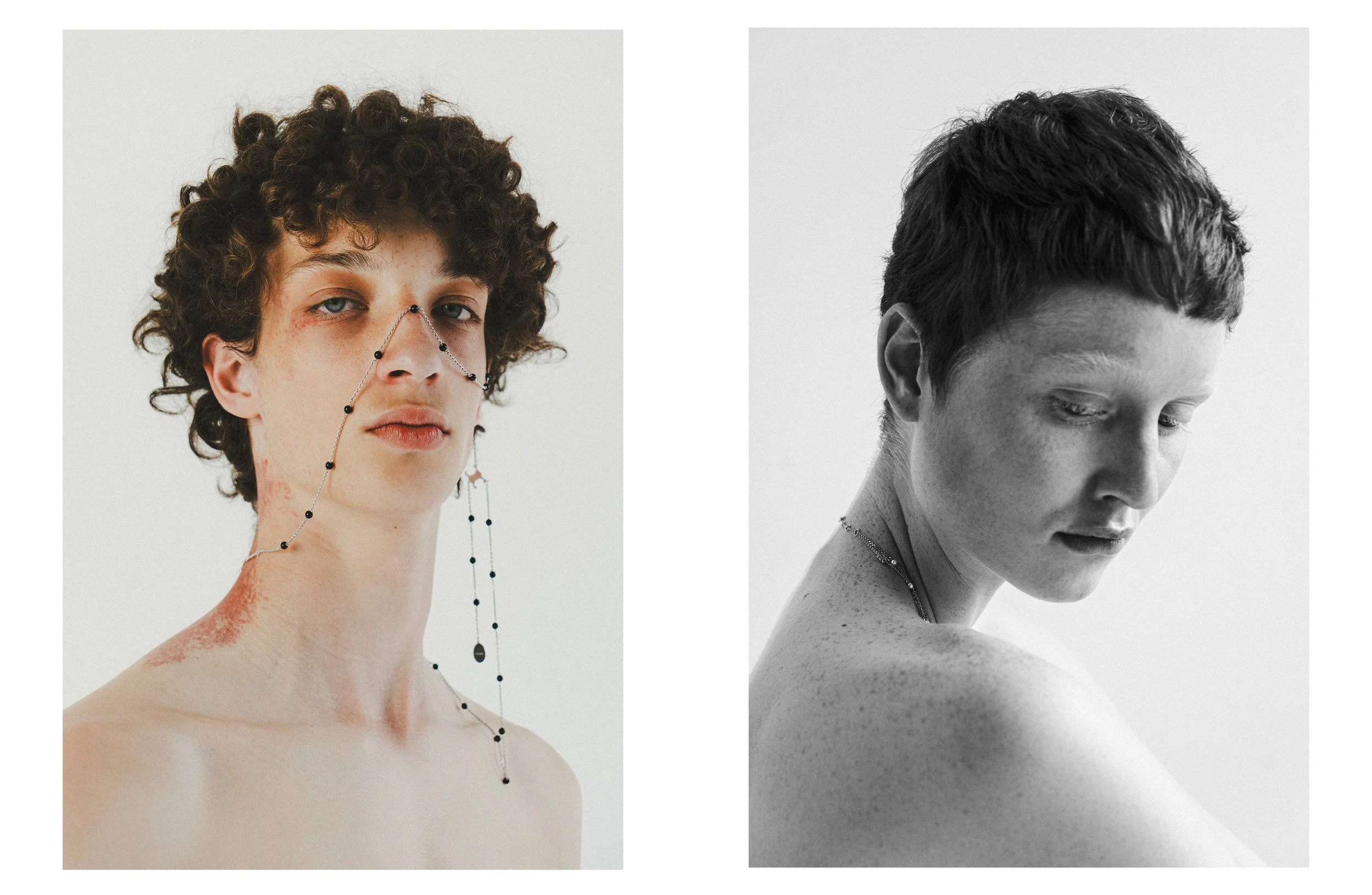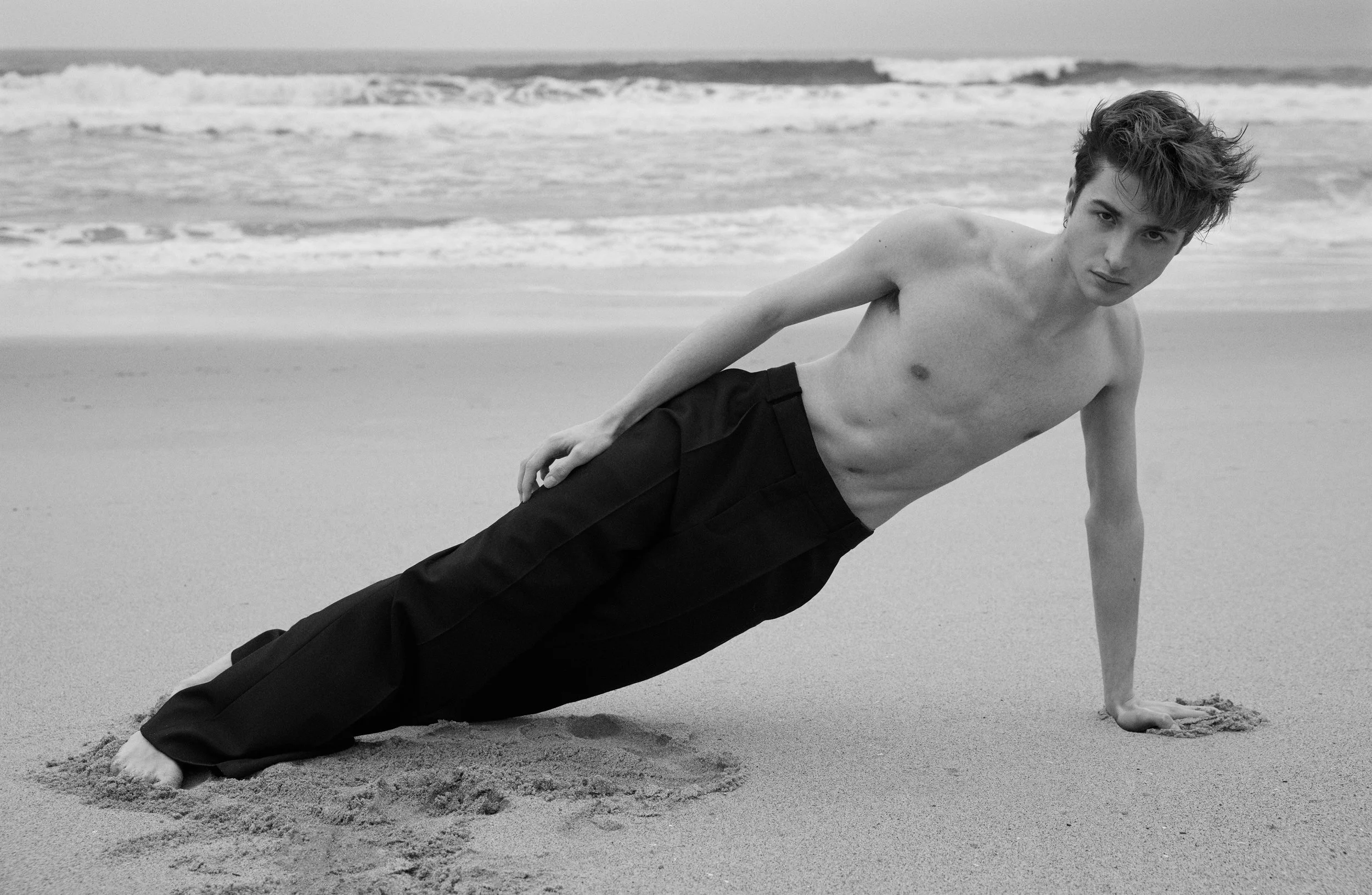Carlos Cuevas has a special charm. I wouldn't know how to describe it, maybe it's because of his smile, his charisma, because of that mix of sex appeal and sweetness that makes absolutely everyone fall in love with him. Since he became the crush of all of Spain with his leading role in Merlí, Carlos became a golden boy of cinema and television. But the boy has grown up and with effort has been building a career as an actor full of emotionally juicy roles with which the young Catalan has explored the difficulties that human beings face when it comes to relating to each other. The repression in Manolo Caro's Someone Has to Die, to the lack of communication in Smiley without forgetting his Pol Rubio in Merlí with whom he managed to communicate the concerns of a very young generation that was facing an uncertain adulthood. Carlos has managed to convey all of this with his vulnerability and courage making him one of the most beloved young actors on the European scene. Now, after starring in the unclassifiable and acclaimed film La Ternura, Carlos is willing to take on challenges and surprise an audience that is eager to follow him in this new chapter.
Left Jumper Carlota Barrera
Right Jacket & pants Ferragamo, tank top GCDS
How strange these days are, we almost have no daylight, they make me miss summer a lot.
Oh, I had such a good time this summer! I finished shooting a movie and then I was able to go on vacation with my friends and have a very quiet summer.
What movie was it that you finished shooting?
One was directed by Marcel Barrena, the director of the movie Mediterráneo. It is titled El 47, also stars Eduard Fernández, and is about an act of peaceful dissidence and the neighborhood movement that in 1978 transformed Barcelona and changed the image of its suburbs forever. Once filming finished, my friends and I went on an adventure. One of our guys lives in the United States, he has been there for a year and we all went to look for him to bring him to Spain and we took the opportunity to visit places like San Francisco, the Colorado Canyon, and Las Vegas... they were incredible days.
What did you think of the United States?
I have visited the country a couple of times already, but every time I return, I can see things from a new perspective. I liked the rural areas we visited; the landscapes were incredible. However, I also feel a little internal conflict about how the United States works. I think fewer and fewer people believe in the American dream.
Would you like to start working there?
I would like to work there as much as in France or Germany, for example. In the United States, some very talented people undertake incredible projects, and I know that I would love to be part of them. I once read an interview with Tom Holland where he said that he loves filming in the United States but isn't very into Hollywood. I think maybe the same thing would happen to me. But I'm not Tom Holland, nor do I expect some executives from Los Angeles to call me tomorrow.
Left Full look Prada
Right Full look Loewe
What did you do after returning from the United States?
I went to the Costa Brava, here in Spain, to rest with other friends in a summer house and visit towns, read, and swim. I think I've decided to take things easy. This fall, I had a shoot, but it was delayed, and I have decided not to accept other projects because I preferred to rest a little.
I'm curious about the books you've been reading. Can you tell me about any?
Sure! I have been reading "The Most Secret Memory of Men" by Mohamed Mbougar Sarr, also some books by Annie Ernaux or Édouard Louis. I have also read "Violado o Muerto" by Isabel Valdés since it is closely related to the next play in which I am going to participate. It is called "Jauría" by Miguel del Arco.
I know that play. I saw it in Madrid a couple of years ago.
That's how it is. It is about the La Manada rape case, which shocked the entire country. We are going to perform the play this time in Barcelona with a Catalan cast. I have been learning a lot about everything that happened.
"Jauría" is one of the most controversial and acclaimed plays of recent years. But as an actor, it is quite a challenge due to its great intensity.
When I was much younger, I participated in many plays, but then they began to offer me many film and television projects that I did not want to reject and that I wanted to do. That's why I put theater aside. At some point, they offered me some play again, but I couldn't commit, and I always felt like getting back on stage because I knew it was a place I never wanted to get off of. When they offered me this project in the spring, I organized my schedule to be able to do it, and I am very excited to have the opportunity to work with Miguel and also to talk about such an important social issue. I think there is something in me, like in many of my colleagues, that feels very attracted to the social and political part of the projects. You have mentioned that you saw the play in Madrid.
Yes, a few years ago.
It is the same work directed by the same director.
Well, I have to tell you, man, you are a brave actor.
I’ve been warned, yes. I was able to speak with some of the actors who participated in the Madrid performances, and they warned me that it was a very intense work. As a man, it forces you to review certain behaviors because you play characters on the edge, very convulsive, who tell a tremendously hard situation that not only affects the audience but also the actor. I wanted to explore those dark corners and do it in my city, Barcelona. But also because of the acting challenge it entails since I have had to face several struggles throughout my progression as an actor. One of the biggest has been separating myself from a teenage character.
Are you referring to Pol Rubio, your famous character from the TV show Merlí?
Yes, but it is normal that when you do something with such success, you are offered very similar roles. After Merlí, I could have played many other teenage and university students in a romantic comedy. And it's not that I don't like romantic comedies, I had a great time in that type of fiction but I felt the concern of doing something different, and "Jauría" is completely different from everything I have done so far. It is a play with a social side, a very adult character that even his accent is difficult since he is Andalusian.
You have talked about the challenge of detaching yourself from Pol Rubio, and I think you have achieved it because you have been playing very, very different roles. How do you keep your head from going crazy?
Sometimes very different projects have overlapped, one of three from another, and I have felt like my head was exploding! This fall I will combine the play with the shooting of a film that is completely different. I guess it's all about having experience, about training your acting muscles. But, yes, it is complicated, but no more than any other job.
Jumper Carlota Barrera & pants Fendi
Jauría is a project of great intensity, and some actors like to jump into the void without hesitation.
Yes, it is a very, very intense project. But I like those projects that make you feel that you are not acting but living it. Coming home and realizing that I have cried, I have been angry... that I have made my body experience strong emotions fills me with satisfaction.
In Jauría, the male actors play many roles in a single performance. You play judges, prosecutors, defendants... the audience is not used to seeing you play a villain.
No, it is not, and that is another of the struggles that I have told you about before. I cherish all the characters I have played; they are all very cool. But I know that my profile as a blonde and smiling boy sometimes means that I get nice and good characters. I want to be considered for other kinds of roles because I know I can play them.
And why do you think Miguel del Arco wanted you to be part of Jauría?
I think he saw my interest in the play and what it wants to tell on a social level. I was eager to work with Miguel since all of his previous work is wonderful, and the team that was involved in the play and being able to do theater again are some of the factors that have made me want to participate. As you have said, in the play, we do not play a single character; we play several in a kind of tour de force, which also seems very appealing to me.
Do you think about the public's reaction when you get involved in a project?
Yes, I think about whether I can add something socially if it will create a new perspective for whoever sees that project and awaken a new sensitivity in them. I don't ask that everyone be transformed when they see one of the projects, but, as an actor, I always ask myself if what I'm doing causes some kind of emotion, if it goes further, if it manages to change something. I think once we're shooting and the camera is on, we should try to step up and move forward.
I believe that your filmography is very unique since in multiple series and films you have explored romantic relationships in all their aspects.
The more terrain we can explore, the better, don't you think? In any job, you end up getting bored if the task is excessively mechanical and monotonous. The good thing about being an actor is that we can embody different people at different times living different lives. What stimulates me is variety, living different experiences that generate empathy with different people. Acting, in a certain way, you do not live another person's life since it is always you and your ideas that inhabit the character, but you do create empathy with what he lives and tells.
Have any of the characters you've played so far changed you emotionally?
I'm a very open type of actor who is always willing to listen to what the character has to say. I always keep with me something that one of my characters left me since they all experience very different things; they have varied stories and voices that have nothing to do with each other. But if I have to tell you a character that changed me, I think I would say Bruno, who interested me for several years in the Merlí series and its spin-off. For me, Bruno was a before and after; it was a very important stage in my life. I also think that there are more secondary characters that I have done that have still managed to transform in a certain way.
Can you give me an example?
Many times the impact that a character can have on yourself depends on the personal direction you are taking at that moment. A few years ago, I filmed a series about Leonardo DaVinci in Italy for many months. You don't know the professional and personal growth that the project entailed! I went to live alone in a country and work in other languages, and I even managed to learn Italian. I spent the weekends alone in a country I didn't know; it was quite a challenge, and I had to wake up a lot. The acting level of the series was very high, and I had to work with people who had come from doing projects with Terrence Malick or productions of the Lord of the Rings level. Leonardo was a show that gave me many professional but also personal things, and I think, in general, all the characters that an actor plays manage to give you something, some in a more physical aspect and others in a more psychological way.
Left Tee Miu Miu, pants Mans Concept Menswear, shoes Hereu
Right Full look Givenchy
It is said that bravery is being afraid but still getting on the horse. Does Carlos get on the horse?
Yes, I think so. I am a very hard-working person, and the fact that something is difficult is not a problem for me. For me, a problem with a project arises when it does not agree with my values and what I want to say. But the difficulty of something has always been a stimulus, not a problem.
Can we then affirm that Leonardo has been the greatest challenge of your career so far?
I don't know what my biggest challenge has been. Leonardo was a challenge in many ways, especially living alone in a foreign country, but there have been many others. I could tell you about "45 Revoluciones," my first series as a protagonist. I did it very young, at 21 years old, and I had to sing, play the guitar, and even move to a city that was not mine, Madrid. Something similar also happened to me when they offered me to star in "Merlí: Sapere Aude" or "Smiley"; they were two great challenges. "Smiley" was the first time I did a comedy, and it's not that I'm especially funny in my personal life, but thanks to that series, I learned a lot, and I've lost my fear of doing comedic roles since before I was very embarrassed. But now I want to film a comedy; now I feel qualified to do it. Every project I have contributes something, and now I think that returning to the theater will make me want to do more theatrical roles, with greater scope and with a much heavier emotional baggage.
Do you seriously not consider yourself a funny person? You seem pretty funny to me!
I'm very smart and all that, but you know that in every group of friends, there is a funny guy; well, I've never been that person. There is always someone funnier than me.
And what role do you have in your group of friends?
Sometimes I have been the leader, but I am usually the perfectionist and the responsible one. I have always been more serious than funny, to be honest.
Maybe now that you are more into comedy, things will change!
I think I'm referring more to my role as an actor; that's where I've lost my fear. That moment has come in my career when I have understood what this is all about, and I have stopped judging myself. Over the years, I believe that talent helps you achieve your goals, but it is hard work that keeps you going. If we examine the filmography of any actor, we always see an evolution. And the truth is that I think I have a lot left to do.
How do you feel when you see a project you starred in a few years ago again?
I never see them! I have a hard time seeing myself on screen! I know that it happens to most of us actors and that it is an absolute cliché. When I have seen any of my projects, it is out of responsibility, to see my colleagues, celebrate them, and learn what I have done well and what I have done wrong. I don't bother, since the actor plays a specific role, and many times we have no control over the final result. Sometimes we agree with the director's idea, and other times we don't, and when you see the finished film or series, it is not like what you would have made since there are many people involved.
Jacket & pants Ferragamo, tank top GCDS
Have you never felt like directing a project yourself?
Yes, I want to, and I'm thinking about doing it. I started working as an actor at a very young age, and every time I enter a filming set, I feel an impulse that leads me to think about what intrusion I would give to an actor, where I would put the camera, and things like that. I always try to learn from everyone on set and put myself in their shoes. I think all of these are symptoms that I want to get behind a camera, and I think that's the next thing I should do. What I am very clear about is that I don't want to stop acting because I like it a lot, but maybe I should combine it with directing or something like that.
And have you thought about what kind of stories you want to direct?
I like social, personal, and emotional stories. I wouldn't dare direct something like horror or science fiction. I would love to direct a social drama with a theme that would pique the audience's interest.
You have played a multitude of characters with very different backgrounds, and I would like to know if their mistakes have helped you not make yours.
Absolutely! I recently heard a colleague say that we actors spend our lives trying to understand the psychology of our characters to try to empathize with them. That's why I believe that with each project, it is possible to learn something and mature a little as a person. When you agree to play a character, you know it through a script, and you think in one way about it, but throughout the process, you listen to different opinions such as that of the director, the scriptwriters, or your co-stars, and you constantly learn, opening your mind. It's like intensive therapy.
Don't you get a little confused between your own identity and that of the character?
I don't think so. There are traits of a character that you see very clearly and very far from your own. But sometimes, when you are filming, you notice a plot and identify with it and may think that you should apply some of the characters' behavior to your own life. I think that can also happen when you are part of the audience that watches a series or a movie.
Is there a movie from which you learned something important?
I have learned a lot from the cinema. I recently talked about how important films like "The Dreamers," "Martín H," "Dead Poets Society," and "Good Will Hunting" were for me. "City of God" was also a film that impressed me very much. There are also recent movies from which I have learned a lot, such as "Blue is the Warmest Color" or "The Worst Person in the World." Many times I like to revisit some special books or movies because they manage to speak to me in a different way than they did the first time.
I must confess that I didn't like "The Worst Person in the World" at all.
That's good! There are movies that I don't like, but that interests me. I think that also says a lot about yourself.
You're right.
I also love classic musicals!
Would you like to star in a musical?
I'd love to! When I was little, I wanted to be like Gene Kelly. I like those social stories but also fun musicals. Just because a person likes deep stories does not prevent him from also enjoying action movies or light-hearted musicals.
Your most recent film "La Ternura," which has received critical acclaim, ingeniously mixes comedy, magic, and, in turn, social criticism talking about gender roles. What made you accept this project?
Many factors came together. They offered me a role in "La Ternura" when it was going to be made as a play, but I couldn't accept it due to scheduling problems. I was very frustrated not to be able to do it since I love Alfredo Sanzol's work and it is very peculiar. When I found out about the film adaptation, I didn't hesitate and accepted the role.
I loved the movie, but I saw the play a few years ago and I liked it a lot.
Yes, the text is very good. If you have a text like this, you start from a very very solid base, and if you then form a cast of great actors like Emma Suárez, Alexandra Jimenez, Fernando Guallart... It was a great opportunity to be able to do something different!
The truth is that the film has a very curious mix of genres and its setting on an island lost in the ocean gives it an exotic touch.
Yes! It was also great to be able to film in the Canary Islands pretending that it was the Dominican Republic; it is a paradise! I was also attracted to the Shakespearean aura present in the script… "La Ternura" is a film that is very different from the projects in which I have participated so far.
Since you mention it, what is your favorite play by Shakespeare?
Out of nostalgia, I would say "A Midsummer Night's Dream," but now I think "King Lear" or "Hamlet."
Would you dare to play Hamlet?
Not yet! I still have a lot to learn.
Do you consider yourself an adventurous person?
Yes, but I like to know how much water is in the pool before I jump in. Once I find out, I jump without hesitation. In life, you should always be a little bit responsible (laughs).
Interview & Production by Juan Marti
Photography by Lander Ibarretxe
Fashion by Fer Sempere
Hair & Make-Up by Eva Garcia
Light tech Adri Piella & Luis Cobo
Stylist’s assistant Barbara Tango
Set designer Celia Andres
Set designer assit Gemma Tresillo
Retouch Luis cobo
